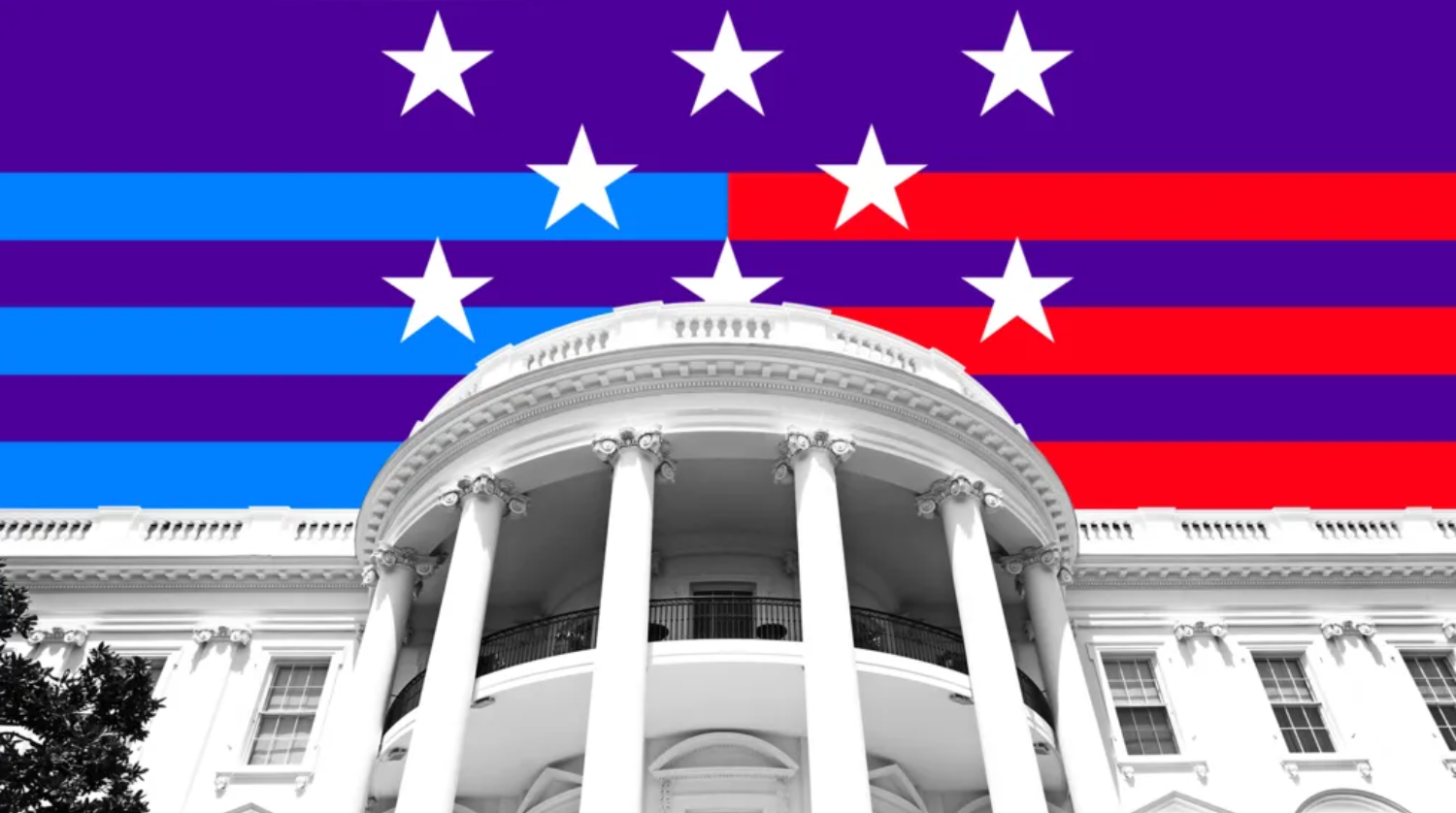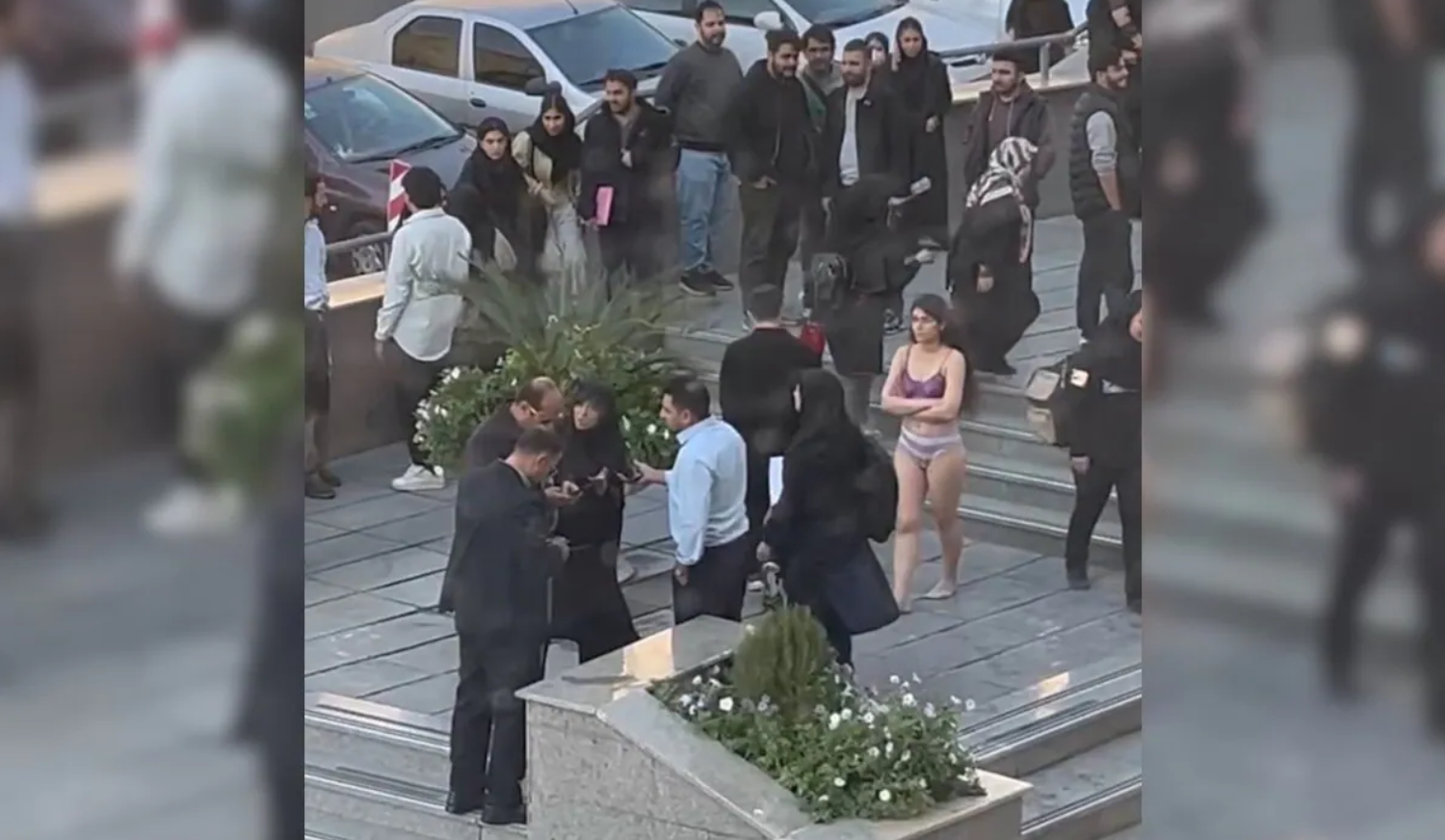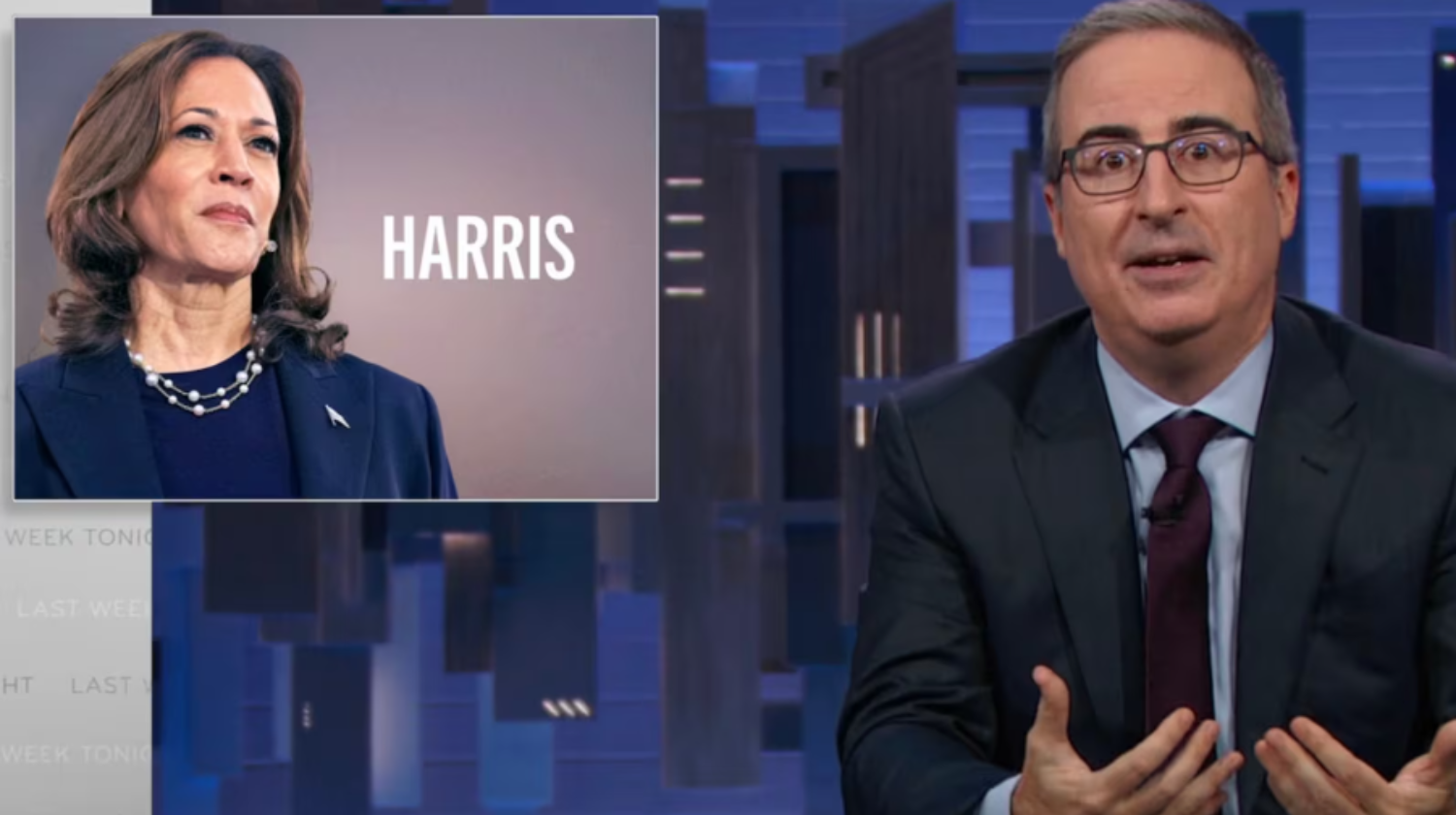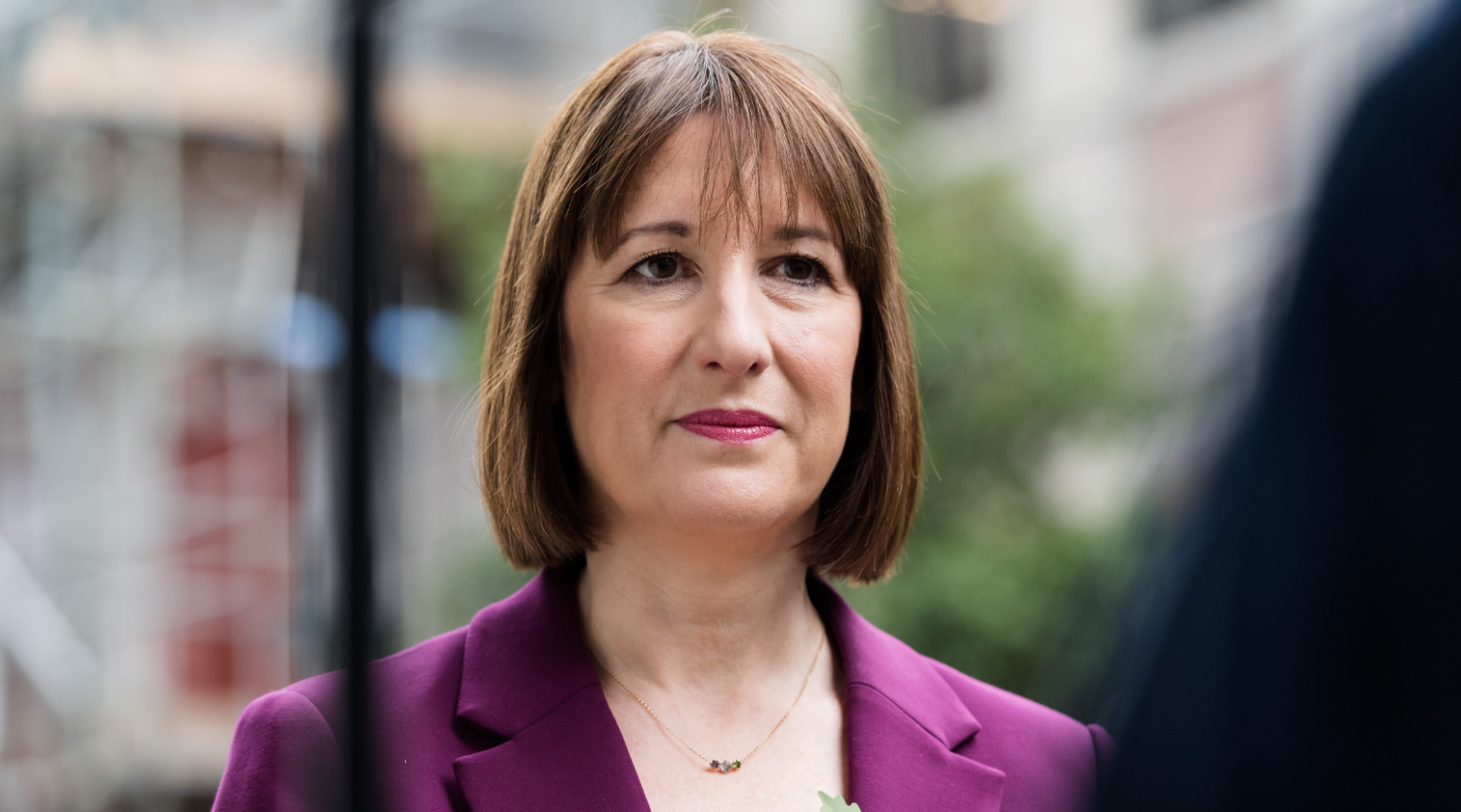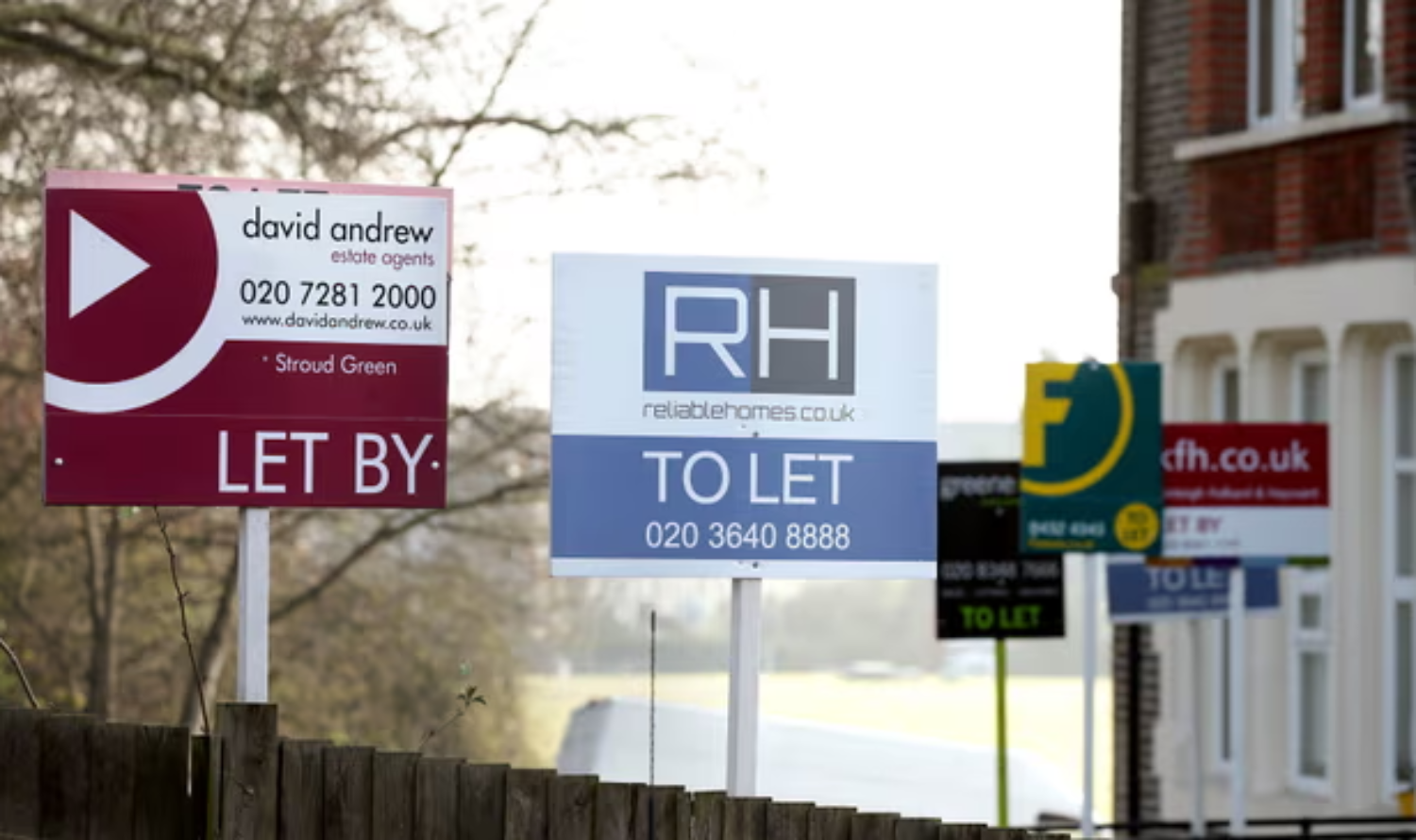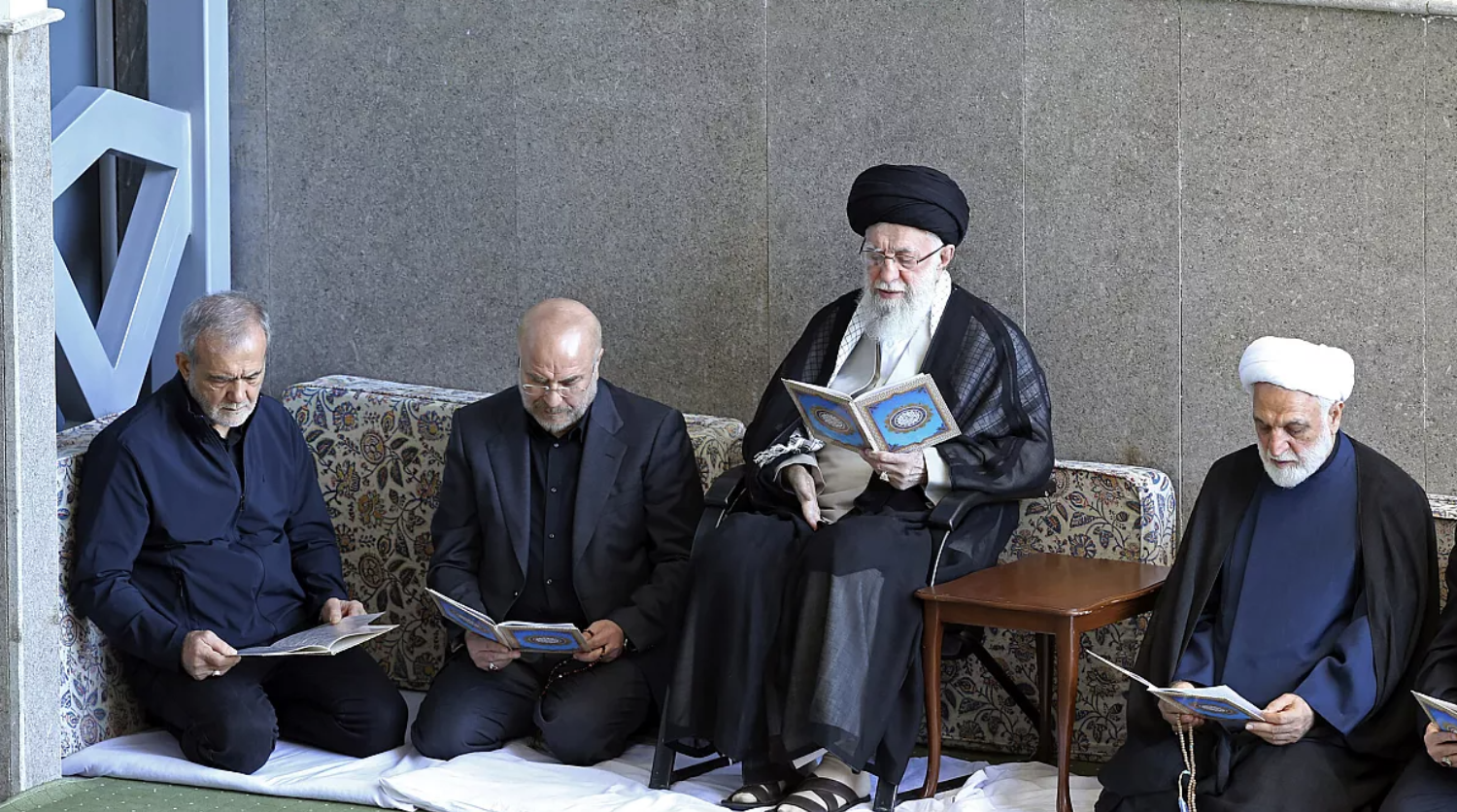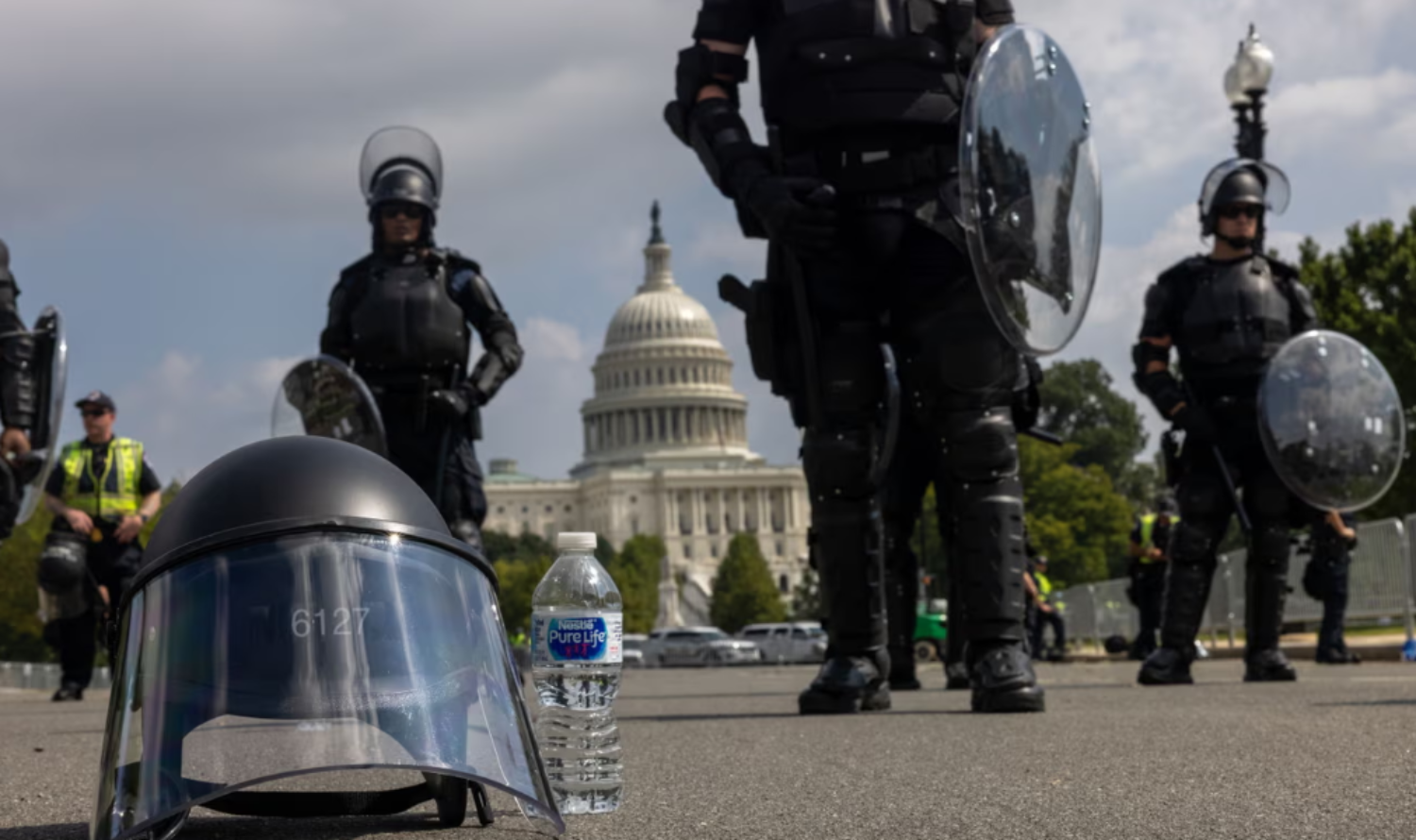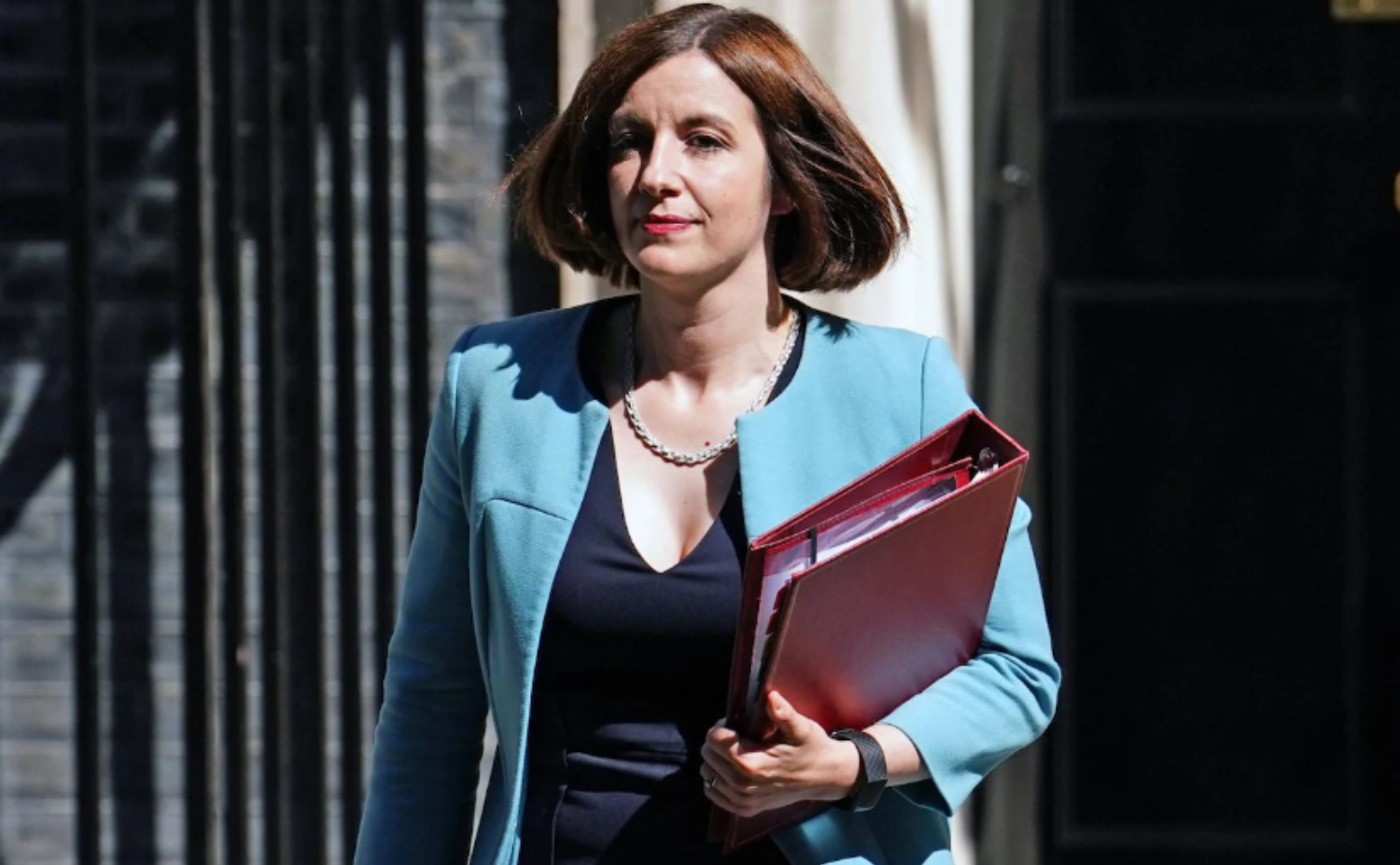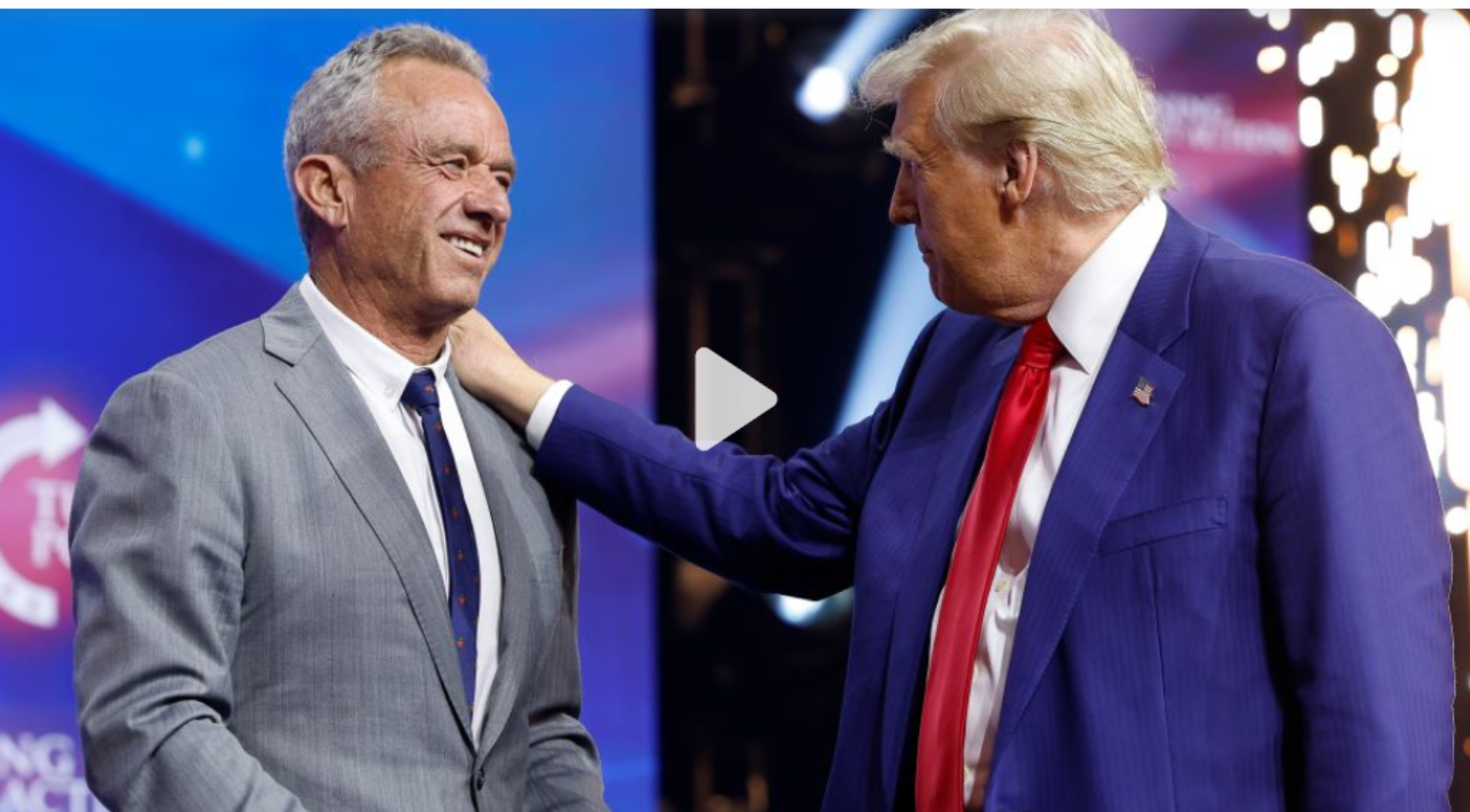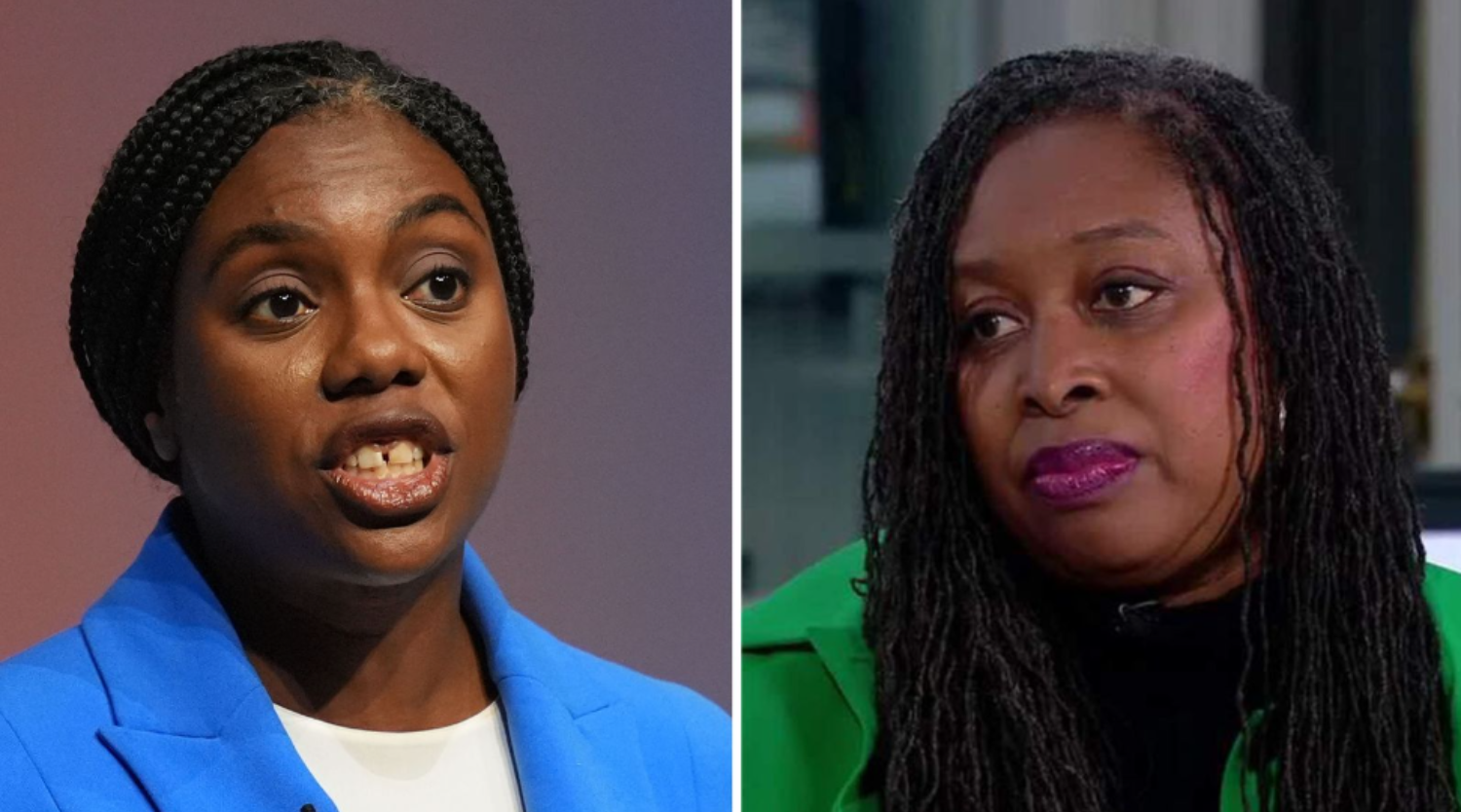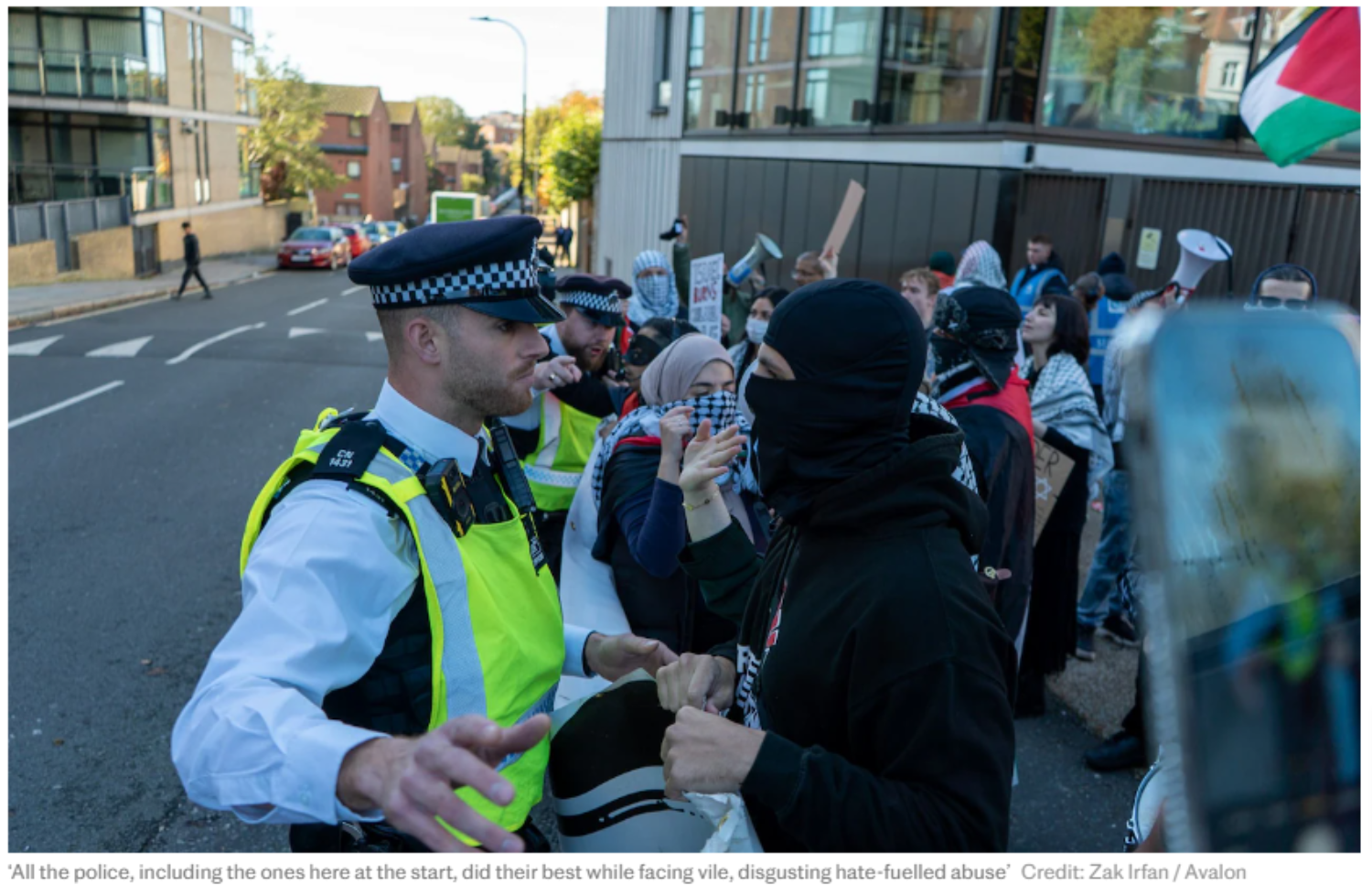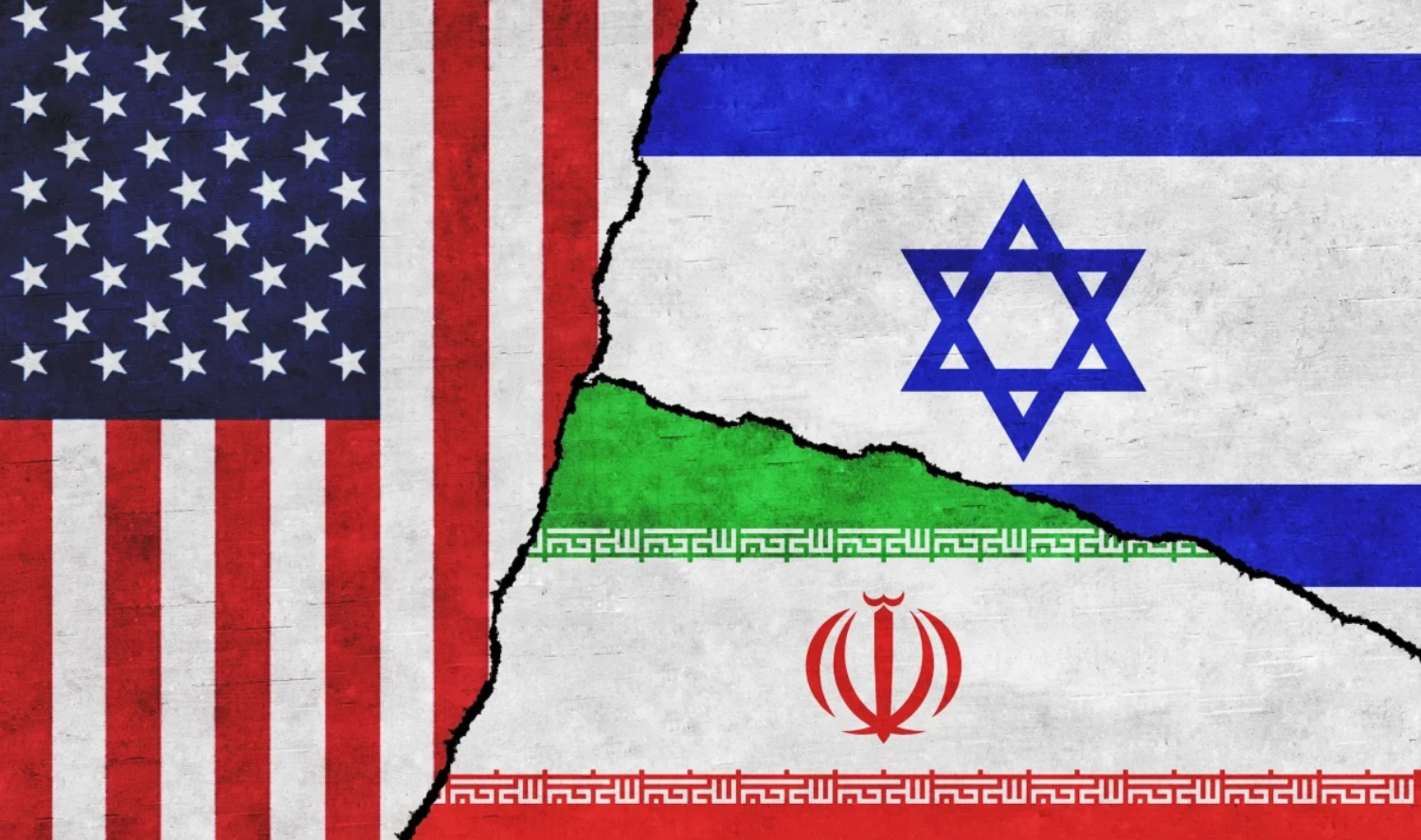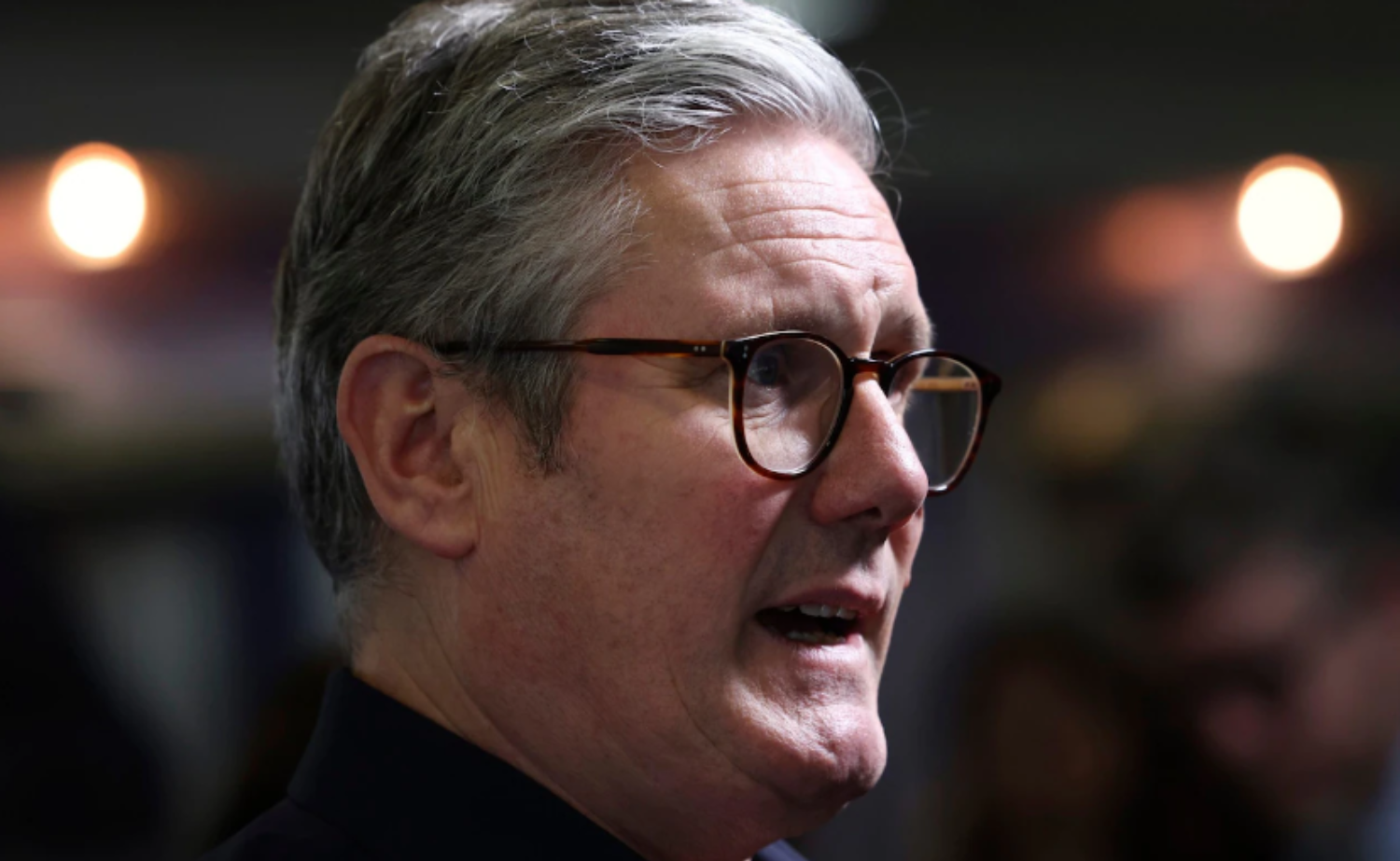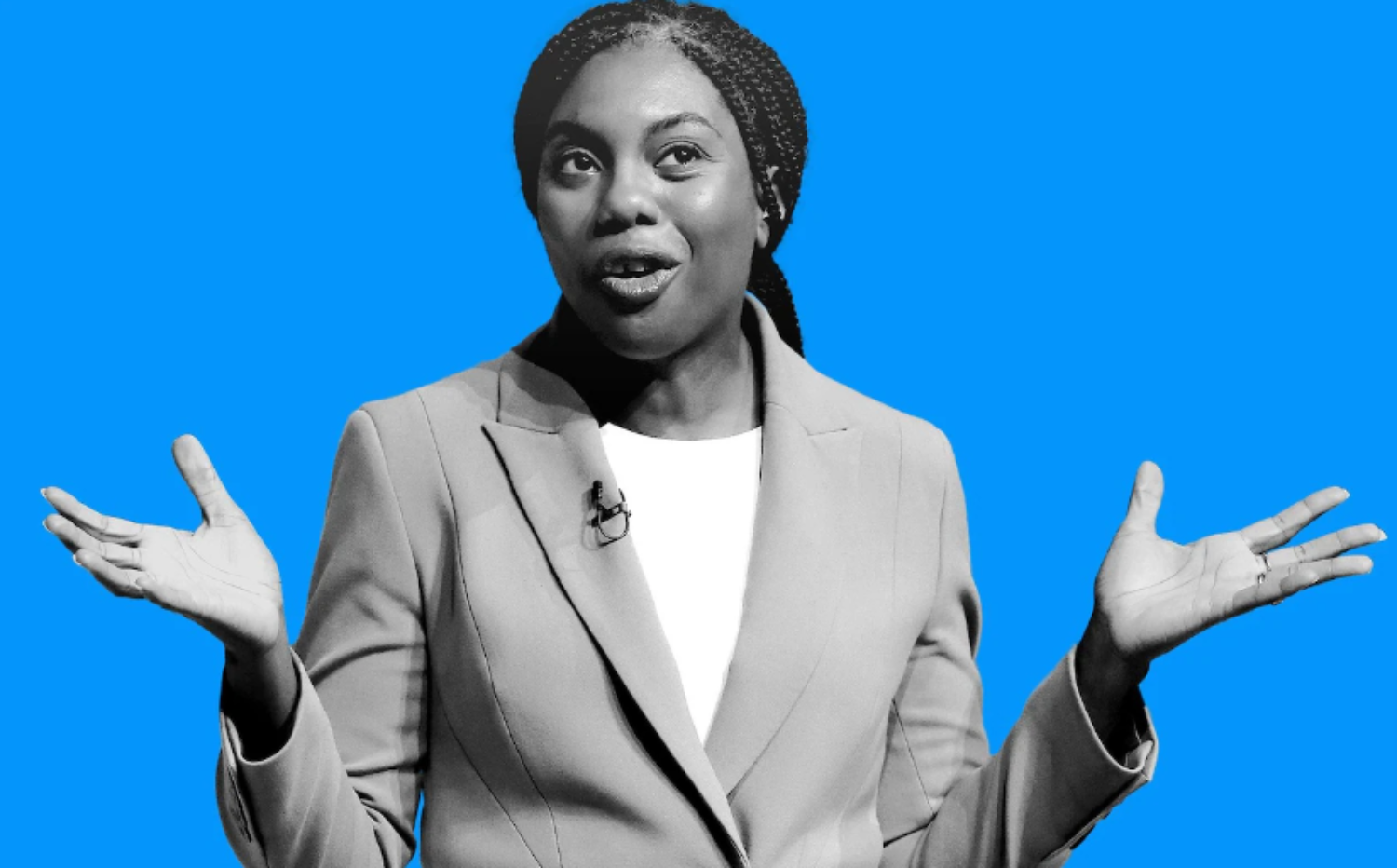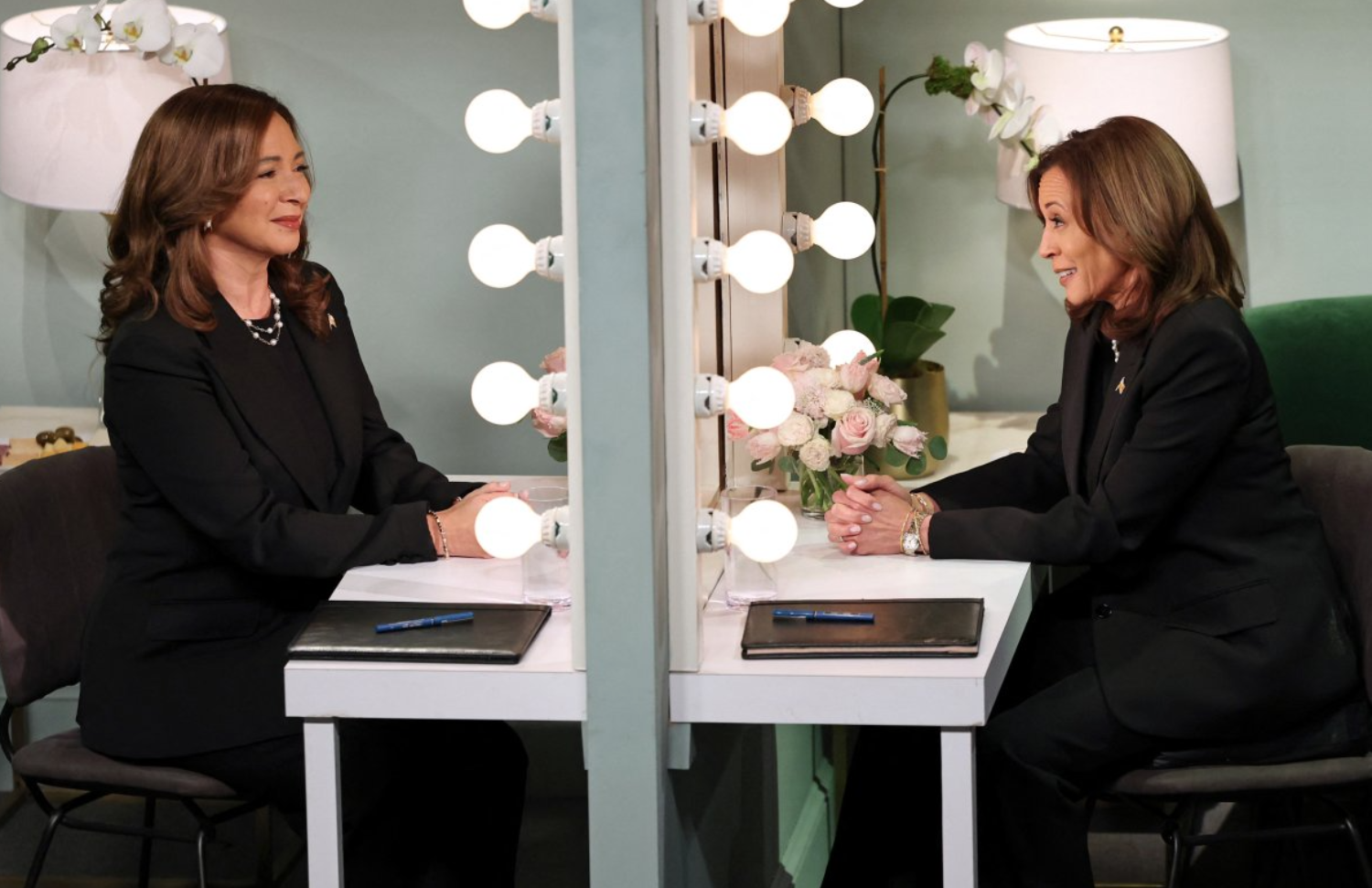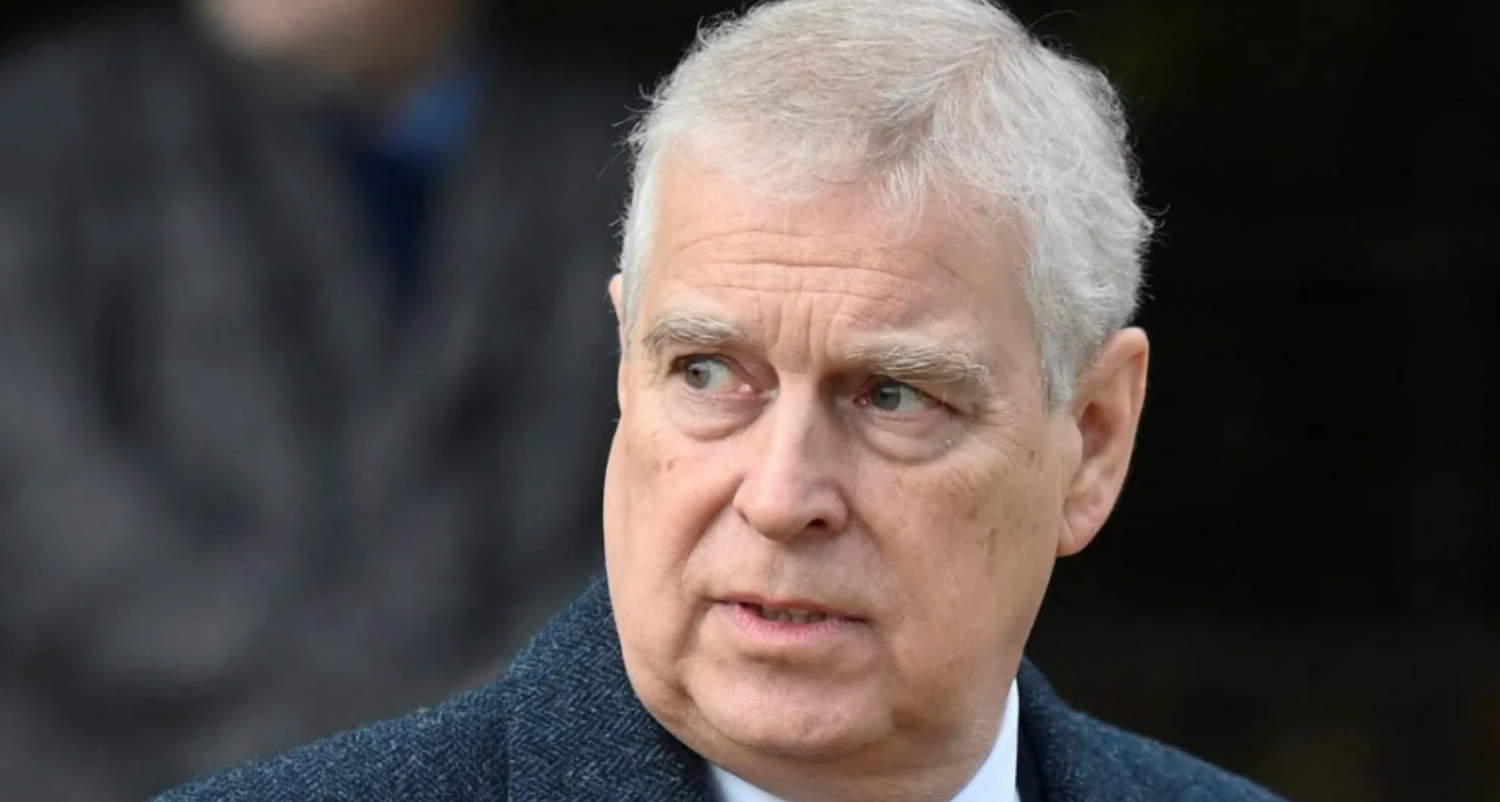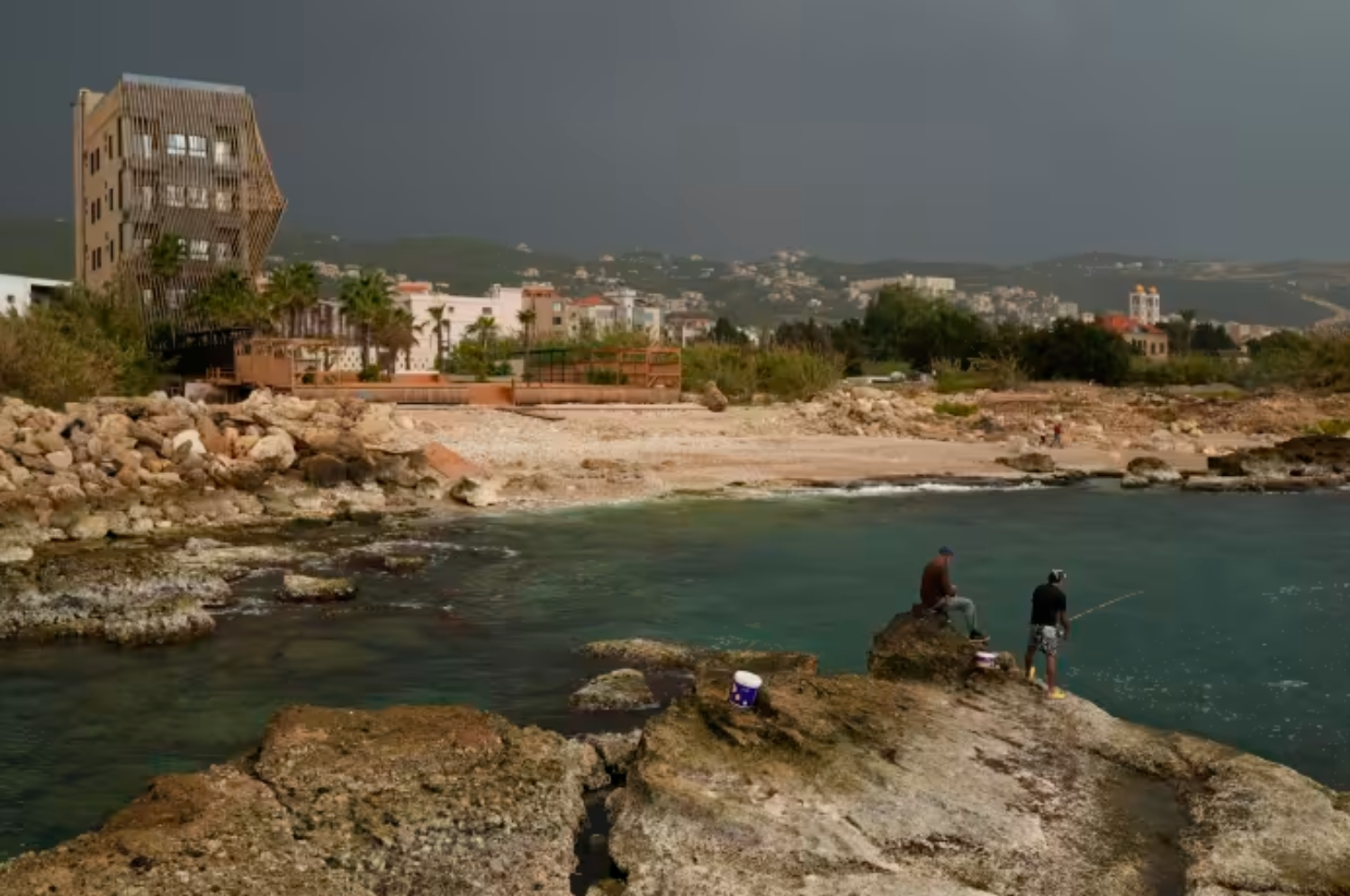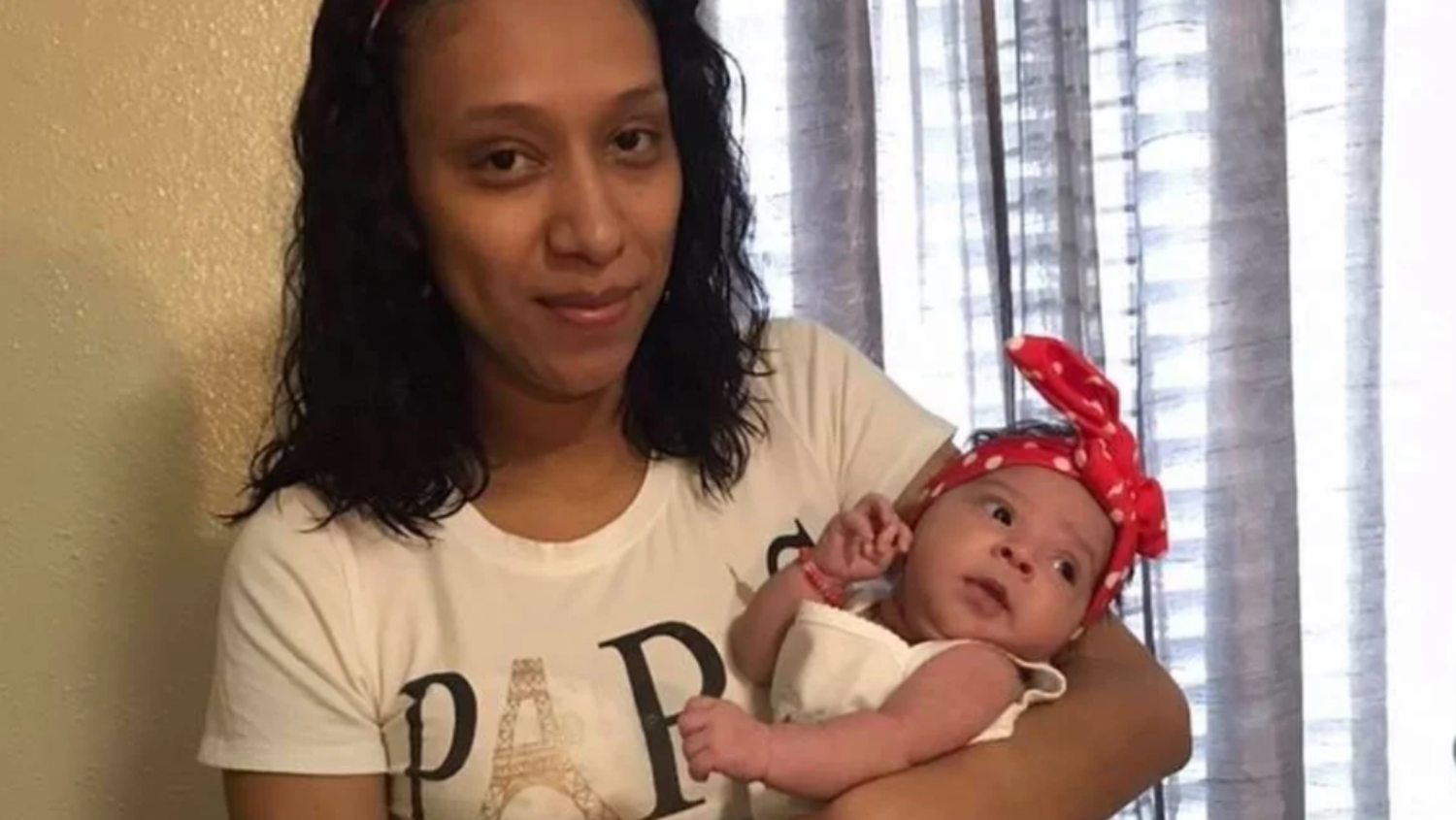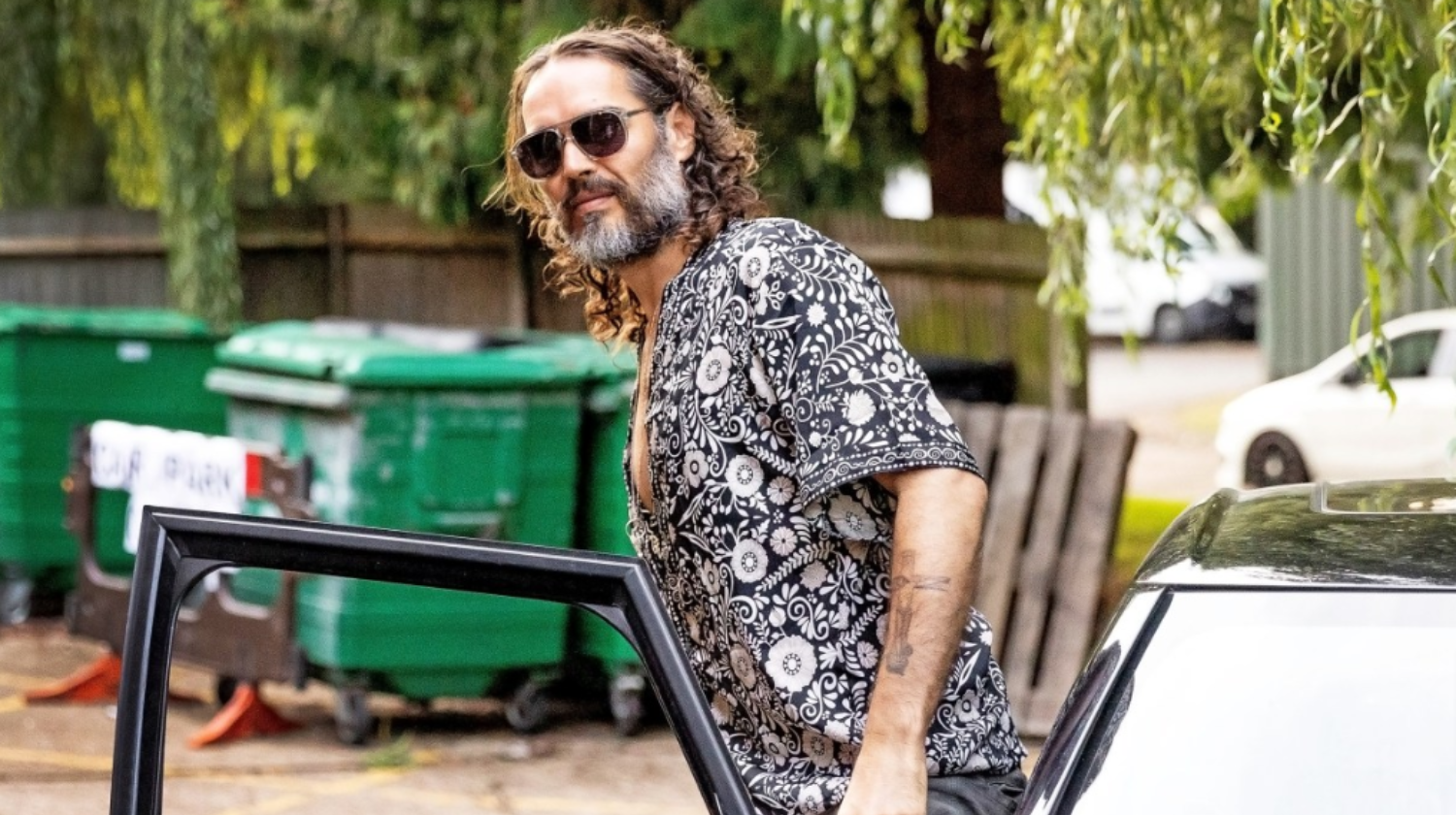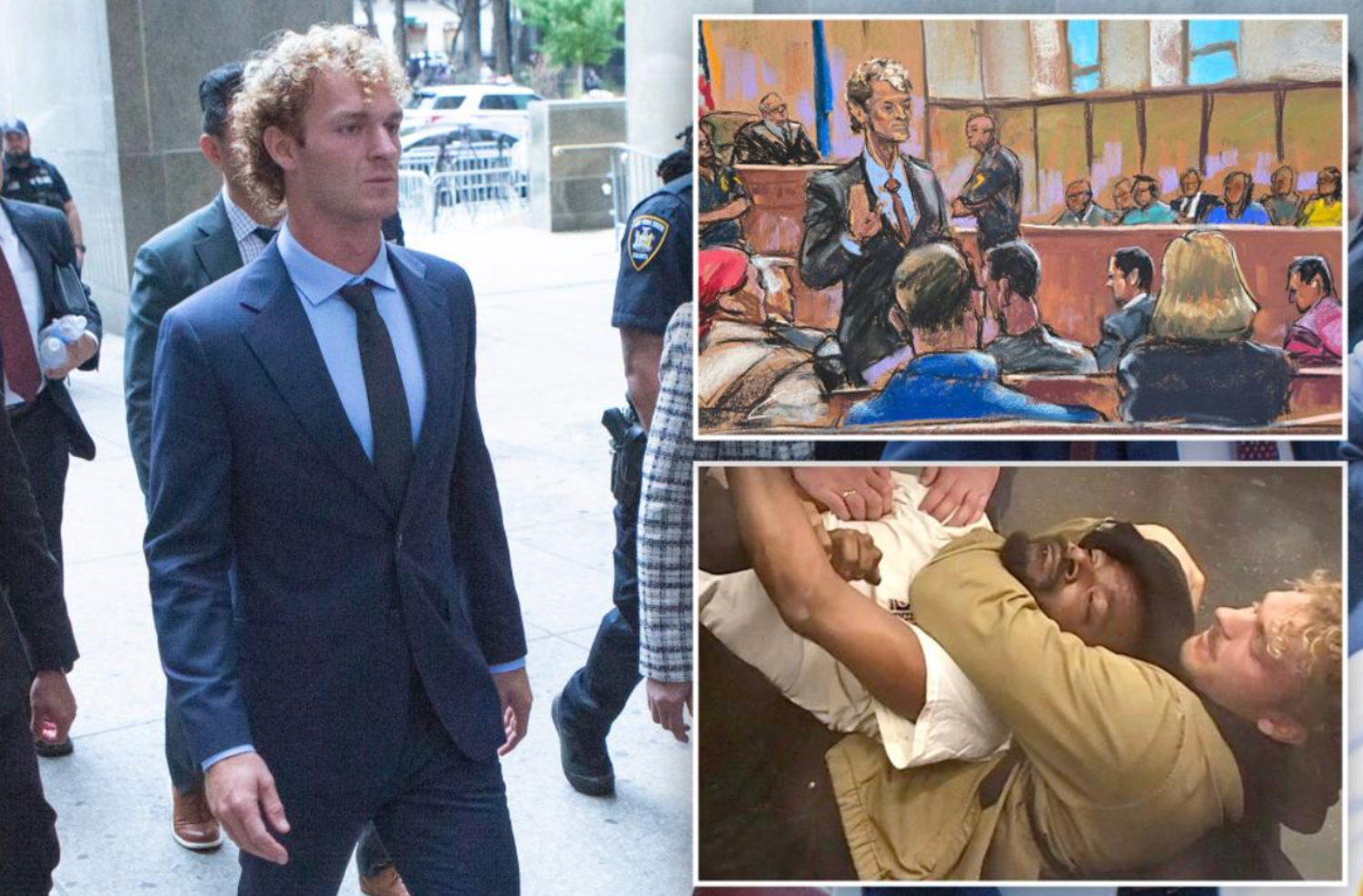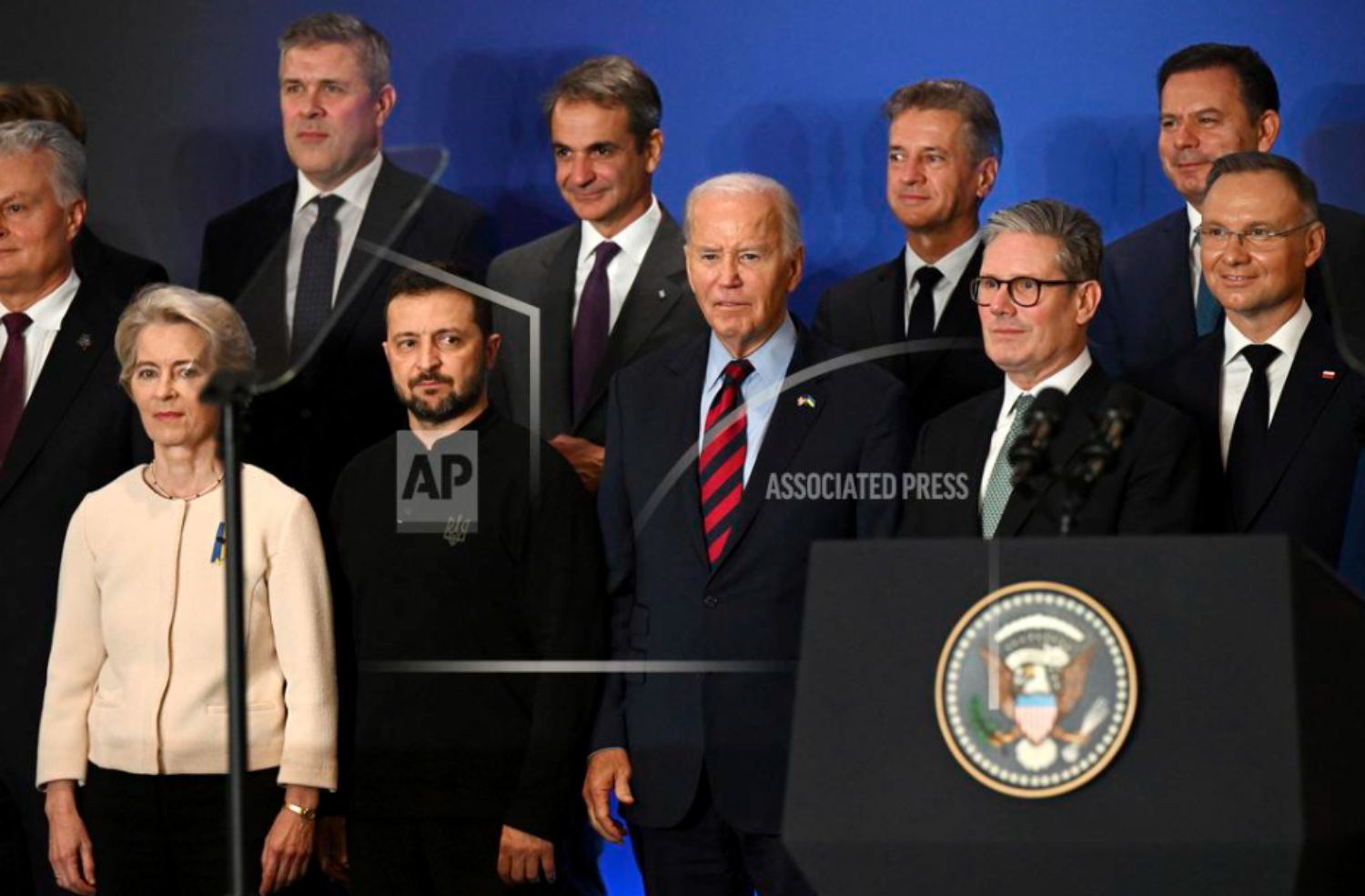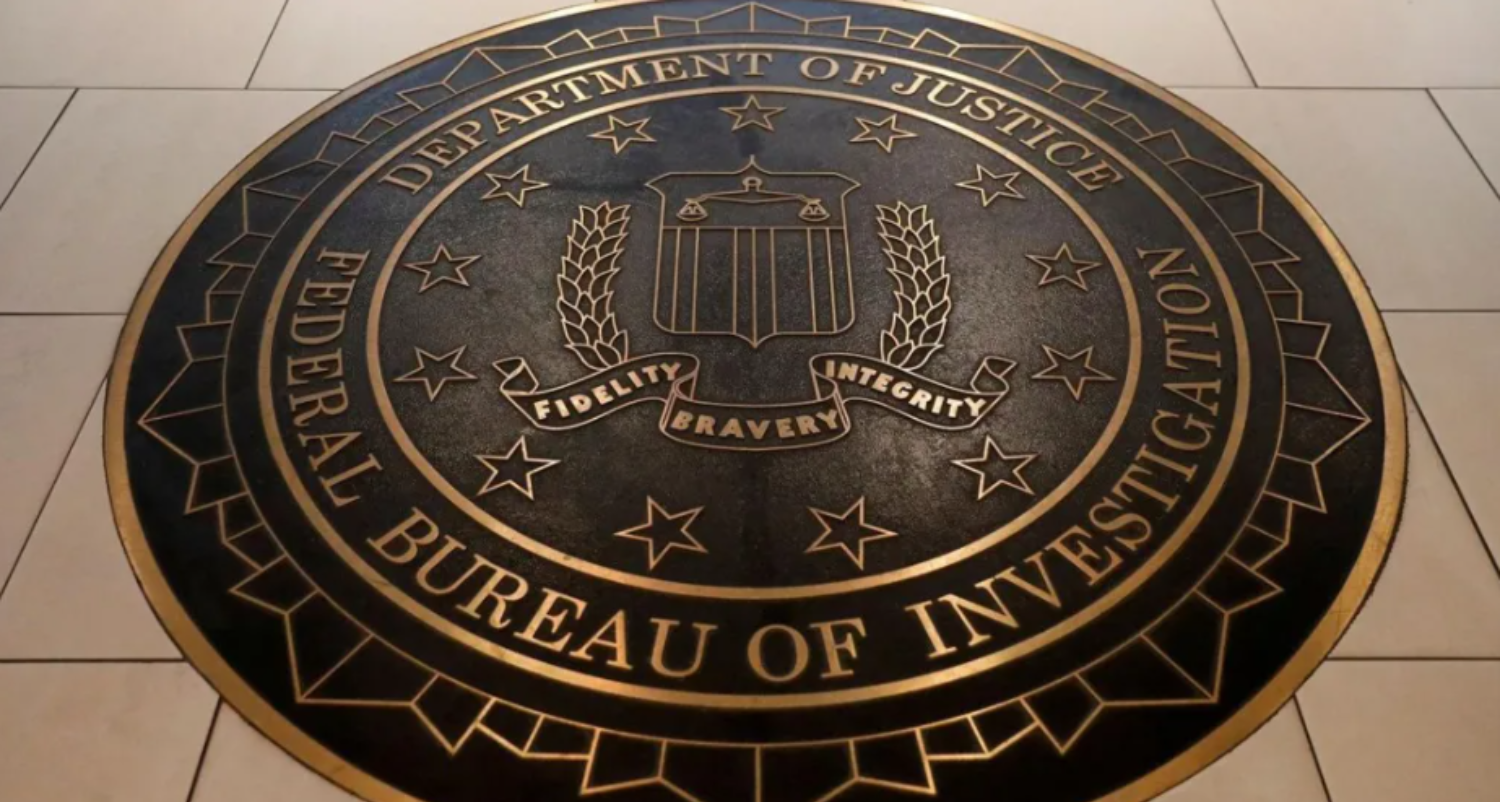-
Posts
10,094 -
Joined
-
Last visited
Content Type
Events
Forums
Downloads
Quizzes
Gallery
Blogs
Everything posted by Social Media
-
American voters head to the polls on November 5 to select the next president, with the race between Democrat Kamala Harris, the current vice president, and Republican Donald Trump, the former president, anticipated to be a close one. Typically, election results have been announced within hours of the polls closing. However, given the competitive nature of this election, it’s possible that a winner may not be immediately declared. Historically, some presidential elections have seen results as early as election night or the following morning, but this year may be different. The close race in many key states could result in longer waits, as media outlets may need more time before projecting a winner. In previous elections, results have been declared quickly. In 2016, for instance, Trump was declared president shortly before 3 a.m. Eastern Standard Time (EST) the day after the election. When Barack Obama won a second term in 2012, his victory was announced just before midnight on election day. However, the 2000 election between George W. Bush and Al Gore serves as a reminder of the potential for delay: the race wasn’t decided until December 12, following a controversial recount in Florida that was ultimately settled by the U.S. Supreme Court. The possibility of narrow victories in crucial swing states raises the potential for recounts and legal battles. For instance, Pennsylvania mandates a state-wide recount if the winning margin is within half a percentage point. In 2020, Pennsylvania’s margin was a little over 1.1 percentage points. Legal challenges may also arise, as more than 100 lawsuits have already been filed on pre-election issues such as voter eligibility and voter roll management, many by Republicans. Additionally, any election-related disruptions at polling sites could further delay the outcome. On the other hand, improvements in vote-counting processes might lead to quicker results in certain areas. Some states, like Michigan, have adopted faster counting methods, and with fewer mail-in ballots expected compared to the pandemic-affected 2020 election, the counting process could be shorter. As polls close across the country on election night, early trends may start to emerge, though analysts urge caution. Known as the "red mirage," early results in some states may skew Republican, as smaller, more rural districts that often lean conservative tend to report faster than urban centers, which typically favor Democratic candidates. Election analysts point to seven swing states that will be closely watched, as they could determine the next president. These key battlegrounds include Arizona, Georgia, Michigan, Nevada, North Carolina, Pennsylvania, and Wisconsin. The first polls close at 6 p.m. EST on election night, with results likely trickling in throughout the night. By 7 p.m. EST, early returns from states like Georgia could provide initial insights, though it will still be too early for any definitive conclusions. Polls in Pennsylvania, another crucial state, will close at 8 p.m. EST, but due to state laws, vote counting there cannot begin until the start of in-person voting, potentially slowing the reporting of results. The last polls close in Nevada at 10 p.m. EST, and given Nevada’s policy of counting mail-in ballots postmarked by election day if they arrive by November 9, it’s likely to take days before the state’s full count is known. Inauguration Day for the next president is set for January 20, 2025, at the U.S. Capitol, marking the 60th presidential inauguration in American history. During the ceremony, the new president will take an oath to uphold the U.S. Constitution and deliver their inaugural address to the nation. Based on a report by BBC 2024-11-04
-
In a dramatic act of defiance against Iran's strict dress code, a courageous female student publicly stripped down to her underwear outside the Islamic Azad University in Tehran on November 2, an act she later paid for with a reportedly violent arrest. The young woman, whose name remains unknown, made her way through a crowded street, defying a regime notorious for enforcing severe modesty laws. This rare display of protest has highlighted the risks women in Iran take when challenging a government that mandates female citizens to adhere strictly to wearing the hijab, a law covering the head and often concealing much of the body. In response to this latest incident, Amir Mahjoub, director general of public relations at Islamic Azad University, confirmed the woman’s arrest, stating on X, “Following an indecent act by a student at the science and research branch of the university, campus security intervened and handed the individual over to law enforcement authorities. The motives and underlying reasons for the student’s actions are currently under investigation.” Eyewitness reports and accounts from an Iranian student opposition group suggest that the young woman disrobed after being harassed by security forces for not wearing a headscarf. According to these sources, her clothing had reportedly been torn during the altercation, which led her to strip further in protest. Disturbingly, an Iranian student newsletter named Amir Kabir reported that "bloodstains" were visible at the scene of her arrest. It is suspected that during the scuffle, the woman may have been injured, possibly hit by a car door or slammed into a concrete pillar, a detail that has yet to be independently verified. As calls for her release grow louder, the incident underscores the ever-present risks for Iranian women who challenge the nation's strict dress codes. Despite the potential for violent retribution, their acts of resistance continue to shine a light on the struggle for women's rights in Iran, resonating with supporters worldwide. Based on a report by the Daily Express 2024-11-05
-
John Oliver, known for his sharp wit and incisive commentary on HBO's *Last Week Tonight*, showed a rare emotional side during Sunday’s episode, urging reluctant voters to support Kamala Harris in Tuesday’s election. Fighting back tears, Oliver launched into an impassioned 10-minute monologue, voicing his support for Harris while addressing the stakes of the election with an intensity that underscored his deep concerns. Oliver stressed that while supporting Harris may be difficult for some, it’s better than enduring the alternative. “I know it’s hard to imagine things getting worse on this, but to be fair, Trump has always been one to roll up his sleeves, throw on a very unflattering vest, and dig us into a new layer of hell,” he said. The damage of a Trump second term, Oliver warned, would extend beyond the next four years, impacting any future progressive leaders. He also highlighted the potential for Trump to appoint new Supreme Court justices, cementing a conservative majority. “A Trump win would allow him to replace Supreme Court Justices Clarence Thomas and Sam Alito, ‘cementing a majority that would likely last for the rest of my life.’” As Oliver’s voice quivered with emotion, he reflected on his own political journey, noting that politics often feels transactional rather than inspiring. He admitted he hadn’t wanted his first vote as a U.S. citizen to be for “Joe f—ing Biden,” but emphasized that “the struggle for justice isn’t just about what happens on Election Day. It’s a fight waged constantly, day in day out.” In his view, electing Harris would be one of those incremental steps toward justice, even if imperfect. Ending his monologue on a lighter note, Oliver acknowledged that a Harris win would, at the very least, mean no longer having to worry about Trump’s potential influence. “Wouldn’t it be great to live in a world where he’s no longer an active threat? Just an annoyance,” he asked, imagining a future where Americans could move past the “orange, gaping-mouthed Trump in a fluorescent vest.” In his final words, Oliver conveyed a simple yet heartfelt hope: “I want so badly to live in that world, and I hope everyone does everything in their power in the next 48 hours to make that world possible.” Based on a report by Daily Beast 2024-11-04
-
Chancellor Rachel Reeves recently acknowledged that she was "wrong" to claim higher taxes were unnecessary. Just a month before Labour's victory in the July election, Reeves had emphasized growth over tax hikes, stating that "we don't need higher taxes, what we need is growth." However, on Wednesday, she enacted the largest tax increase since 1993, raising taxes by £40 billion and sparking a rise in government borrowing costs that stabilized by Friday. Trevor Phillips asked the chancellor why “a reasonable person would believe a single word you say” in future. The Office for Budget Responsibility weighed in on the potential impacts, suggesting that the tax hike will largely be felt by workers, who may experience lower wages, and consumers, who may face higher prices. The OBR estimated that the increase in employers' NI could reduce overall work hours by the equivalent of 50,000 hours across the economy. Moreover, the OBR’s budget review indicated that these tax increases would not lead to the economic growth Labour had projected in its campaign promises. Reeves, however, expressed determination to surpass the OBR's predictions, stating, "I’m not satisfied with those numbers, those aren’t the summit of my ambition." She reaffirmed her commitment to achieving greater economic growth, adding, "I think we can grow our economy faster than those numbers, and that’s my job now, to get those growth numbers up." In the face of a challenging economic landscape, Reeves’ pivot on tax policy underscores the complexities of fiscal management and her commitment to stabilizing public finances. Based on a report by Sky News 2024-11-05
-
Low-income renters in the UK are expected to face mounting financial challenges due to the government's decision to freeze housing benefits, despite escalating rent prices. Experts are raising concerns over Rachel Reeves's recent budget decision to keep the Local Housing Allowance (LHA) at its current levels until 2026. The decision comes amidst an ongoing housing affordability crisis, exacerbating the difficulties faced by vulnerable renters. The announcement was confirmed by Liz Kendall, the Work and Pensions Secretary, who stated that LHA, which determines the amount of housing benefit for claimants based on local rent rates, will remain unchanged. This freeze extends a trend seen over the past decade, with the Conservative Party having previously frozen LHA for seven of the last twelve years, before briefly increasing rates earlier in 2024. Cara Pacitti, a senior economist at the Resolution Foundation, expressed disappointment over the decision, stating, “We were really disappointed not to have seen an increase in local housing allowance, to support low-income renters with their housing costs.” Pacitti highlighted the rapid rise in rental prices, adding, “LHA was increased to match local rents last year. Since then, we’ve seen 8% rental growth. That’s obviously totally unsustainable and, for a lot of families, that’s going to mean really significant gaps between the housing support they’re given and the private rents they’re trying to pay.” A study by the Joseph Rowntree Foundation reveals that private renters relying on LHA to cover their housing costs will, on average, be £243 worse off annually due to the freeze. This figure could climb to £703 by the end of the current parliamentary term if rent prices continue to rise at current rates. The Office for National Statistics reported that average private rents in the UK have surged by 8.4% between September 2023 and 2024, compounding the financial strain on tenants. Ben Twomey, the chief executive of Generation Rent, noted that the LHA freeze is a critical yet understated aspect of the recent budget. “The LHA freeze was in the [budget] small print,” he said, adding, “But that is going to affect 4.6 million people who receive LHA. That seems to us to be a choice made by the government that denies support to those most in need of it.” Twomey emphasized that the freeze disproportionately impacts families, as “Half of those people receiving LHA have children who depend on them. So it’s really going to cause major problems in terms of driving people into poverty, driving people into homelessness, and increasing rent arrears.” According to Chris Norris, policy director at the National Residential Landlords Association, rising rental costs are influenced by a shortage of rental properties and the financial pressures landlords face, including rising costs and increased regulations. “They’re rising because costs have really gone up over the past couple of years,” he said. Norris also pointed to the chancellor’s decision to increase stamp duty on second homes and buy-to-lets from 3% to 5%, which he argued would further limit the supply of private rental properties. “Simply put, it’s just more expensive to add stock to the marketplace,” Norris stated. Twomey added that a lack of rent regulation has also contributed to the escalating rental prices, stating, “Rents go up because they can. There’s no check on the way rents increase. Collectively, the market rate of rent is basically what every landlord sticks their finger in the air and decides.” He summarized the situation faced by tenants, noting, “Landlord costs go up, landlord costs go down – either way, tenants’ costs go up.” In addition to freezing LHA, the budget introduced increased funding for housing projects, including £500 million to support affordable housing initiatives. Pacitti recognized this investment as crucial, commenting, “We heard them announce funding for affordable housing, increasing the social housing stock, which is really important for a lot of low-income families who are renting privately when in previous generations they would be in social housing.” A government spokesperson defended the budget’s approach to housing and social support, stating, “We are committed to the biggest increase in affordable housing in a generation, and to ensuring our social security system is fair and sustainable.” They also highlighted recent increases in LHA, noting, “Local Housing Allowance rates were increased earlier this year, worth an additional £800 on average to low-income households, and we have announced £1bn to support low-income families through the Household Support Fund and Discretionary Housing Payments.” While some welcome these measures, the LHA freeze continues to be a point of contention for experts and advocacy groups who argue that without additional support, low-income renters will continue to face an uphill battle in meeting basic housing needs. As rent prices show no sign of stabilizing, the impact of the freeze is expected to weigh heavily on the most vulnerable segments of society. Based on a report by the Guardian 2024-11-05
-
Iran has privately informed regional diplomats of plans for a powerful retaliation against Israel, indicating a “strong and complex” response with the potential involvement of heavier warheads and a wider range of military assets, according to Iranian and Arab officials. The warning comes as the U.S. has advised against Iranian counterstrikes, with the U.S. ambassador to the United Nations, Linda Thomas-Greenfield, cautioning of “severe consequences” should Iran target either Israel or the U.S. The threat follows Israel’s October 26 airstrike on Iran, which exposed vulnerabilities in the country’s air defenses. Israeli officials have stated they are prepared to respond aggressively if Iran proceeds with its plans, and they have not ruled out targeting Iran’s oil and nuclear sites, critical components of Iran's economy and security. Iranian officials have conveyed that their conventional army would be involved in any response, marking a departure from past attacks managed solely by the paramilitary Islamic Revolutionary Guard Corps. According to an Egyptian official, Iran's decision to escalate is in part due to Israeli strikes that killed four Iranian soldiers and a civilian. “Our military lost people, so they need to respond,” an Iranian official said, adding that Iran may use Iraqi territory for certain aspects of the planned strike and would aim at Israeli military facilities. Iran’s preparations suggest a more intense approach, moving beyond previous tactics of limited missile and drone strikes. Arab diplomats briefed on Iran’s intentions revealed that Tehran would likely deploy more advanced ballistic missiles equipped with powerful warheads. In the previous assault on October 1, Iran reportedly fired Emad and Ghadr missiles, as well as Kheibar Shekan and Fattah, two of its newest medium-range ballistic missiles. The timing of Iran’s response, an Iranian official noted, has been carefully considered with respect to the U.S. election. While Iran does not wish to influence the election, it aims to act between the vote on Tuesday and the inauguration of a new U.S. president in January. Iran reportedly prefers Kamala Harris over Donald Trump, according to U.S. intelligence agencies. Despite U.S. pressures, Israeli officials say they’re ready for escalation if Iran proceeds with its threat. Prime Minister Benjamin Netanyahu has asserted that Israel’s recent strike targeted Iran’s “soft underbelly,” adding, “Today, Israel has greater freedom of action than ever before. We can go anywhere that we need to in Iran.” The U.S. had previously helped restrain the October 26 Israeli strike to military sites only, though concerns persist that Israel might now target Iran's nuclear and oil facilities. Netanyahu reaffirmed last week that blocking Iran’s nuclear ambitions remains Israel’s “supreme objective,” though Iran insists it is not developing nuclear arms. As tensions rise, President Masoud Pezeshkian of Iran acknowledged that a response to Israel’s actions is unavoidable. He left open the possibility that Iran’s approach could shift if there were a ceasefire in Gaza and Lebanon, indicating that Iranian leaders are still debating the scale of their retaliation. The U.S. has bolstered its military presence in the region by deploying B-52 bombers, tanker aircraft, and destroyers, as the USS Abraham Lincoln carrier strike group prepares to exit. This redeployment marks the first time the U.S. will lack a carrier strike group in the Middle East since Hamas's October 2023 attack on Israel, further complicating the U.S. and Israel's strategic calculus in the face of Iranian threats. Based on a report by WSJ 2024-11-05
-
The COVID-19 pandemic has left an indelible mark not just on public health but on the way people relate to the world and to each other. Many people have experienced a shift in their thinking, with some turning to conspiracy theories as a way to make sense of uncertainty and fear. One person struggling with this shift is a long-time friend who feels increasingly alienated by a friend’s new views and behaviors. Since the pandemic began, this friend has drifted toward conspiracy theories, relying heavily on "alternative news" sources, endorsing hard-right narratives, and aligning with controversial figures like Donald Trump and Vladimir Putin. Although he claims to be an anarchist and refrains from voting, his rhetoric is often dismissive, arrogant, and insulting toward those who disagree with him, making meaningful dialogue feel impossible. Philippa Perry offers insight into this situation by explaining how turbulent times often drive people to seek firm, simple answers. She recalls how, during the 1930s, Germany was ripe for authoritarian influence because people felt lost in the wake of World War I and the Great Depression. Adolf Hitler offered a direct, albeit dangerous, narrative: Germany’s troubles were due to specific groups, such as the Jewish community. For many Germans, this worldview simplified the chaos and provided a false sense of stability. In a similar way, conspiracy theories today offer straightforward explanations for complex issues, granting people a sense of control. Perry points out that this pattern reflects a fundamental human tendency to seek certainty in times of instability, even if that means endorsing divisive or harmful ideas. Perry references philosopher Hannah Arendt, who noted that individuals feeling isolated or alienated are especially susceptible to movements promising solidarity. According to Arendt, such ideologies provide a clear “us vs. them” dichotomy, which transforms the world into a simple struggle between good and evil. By blaming certain people or groups for their suffering, individuals can channel their fears and frustrations outward, which can be psychologically comforting but socially destructive. Perry suggests that this friend’s embrace of conspiracy theories is a modern example of this need for certainty. His affinity for hard-right figures who portray themselves as strong leaders likely stems from his desire for clear answers in a time of upheaval. Believing in a hidden, malevolent force behind world events may feel safer than confronting the unpredictability of life. Perry adds that challenging such beliefs often intensifies people’s defensiveness. She offers the metaphor of steering into a skid: when someone is deeply committed to their worldview, pushing against them often just reinforces their position. Instead, it may be more effective to try to understand the emotions and fears underlying their beliefs. For instance, the friend’s fears may have been ignited by the pandemic, a time when it might have felt easier to believe in a single cause, rather than a chaotic series of events. This sense of control can be comforting, even if it requires vilifying others. Perry likens this approach to comforting a child who believes in monsters under the bed; empathizing with the child can help them feel secure enough to let go of their fears. Similarly, approaching a friend with empathy might encourage them to open up to different perspectives, although it is far from a guarantee. Ultimately, it’s important to seek relationships where mutual respect is maintained. Perry emphasizes that it is not selfish to pursue friendships that add positivity to one’s life. If repeated attempts to connect empathetically do not lead to meaningful engagement, it may be time to consider moving on from the relationship. This does not mean abandoning compassion, but recognizing that some ideological divides are too deep to bridge without mutual effort and respect. Based on a report by the Guardian 2024-11-05
-
Education Secretary Bridget Phillipson is facing legal action after her decision to delay the Higher Education (Freedom of Speech) Act, designed to shield academics from so-called "cancel culture." This legislation, aimed at safeguarding freedom of speech on university campuses, was paused just days before it was scheduled to take effect in August, sparking significant controversy and a pending High Court judicial review. The Free Speech Union (FSU), a group advocating for the rights of academics and students, has challenged Phillipson's actions, claiming they were unlawful and violated protections for individuals with particular beliefs, including those with gender-critical or minority political views. The FSU argues that Phillipson lacked the authority to halt the Act through a ministerial statement alone, asserting that any potential repeal of the law should involve Parliament, not the executive branch. In granting permission for the judicial review, a High Court judge stated it was in the “public interest” to resolve the issue swiftly. The judge emphasized that even if Phillipson’s intention was merely to “pause” the Act, it may have been insufficient under the Equality Act 2010, which requires that significant impacts be fully assessed. Phillipson's decision has ignited a wave of criticism from academics. The Higher Education (Freedom of Speech) Act had aimed to establish a new complaints system allowing students, staff, and guest speakers to seek compensation if they were unjustly "cancelled" on campus. Additionally, it would have granted the Office for Students (OfS) powers to end universities' overseas partnerships if found to impede free speech, particularly addressing concerns about potential foreign interference in academic settings. This legislation followed several high-profile incidents where academics claimed they were “cancelled” for their views. Notably, philosophy professor Kathleen Stock resigned from Sussex University in 2021 after facing severe backlash for her views on transgender issues. The Act’s supporters argue that the legislation is vital to counter a growing culture of silencing dissenting voices. Many academics have voiced concerns over its suspension. David Abulafia, a historian at Cambridge University, described the current situation as “intolerable,” remarking, “What is a university if it is not a place where you can exchange ideas?” Similarly, Michelle Shipworth, an associate professor at University College London (UCL), expressed concern about the influence of foreign students on academic freedom, sharing that Chinese students had pressured her to drop a module on her course after they took issue with its content. “Without this Act, our Chinese students will continue to suffer in silence, and the very essence of a British education will be stifled,” Shipworth stated. At a recent debate held at City, University of London, opinions about the Act were divided. While some saw the Act as essential for safeguarding free speech, others criticized it as part of a "far-Right agenda" intended to fuel culture wars. Akua Reindorf, a barrister and Equality and Human Rights Commissioner, rejected such claims as “depressing” and “pure guilt by association,” adding, “Freedom of speech is the fundamental human right…without freedom of speech, we cannot advocate for our other human rights.” Phillipson has maintained that universities should not become “political battlefields” and expressed concerns that the legislation might expose students to harmful or hateful speech on campuses. A source close to the Department for Education (DfE) noted that a decision on the Act’s future is expected by autumn, but the timing leaves open the question of whether the judicial review could proceed if the Act is repealed beforehand. A DfE spokesperson commented, “We are absolutely committed to freedom of speech and academic freedom, but the Free Speech Act introduced last year risks imposing serious burdens on our world-class universities. We paused implementation of this legislation so that we can consider next steps and ensure that we protect everyone’s best interests.” Based on a report by Daily Telegraph 2024-11-04
-
Former President Donald Trump recently indicated a tentative endorsement of Robert F. Kennedy Jr.’s proposal to remove fluoride from U.S. water supplies, an initiative Kennedy has promoted as part of a broader public health agenda. Speaking to NBC News, Trump stated, “Well, I haven’t talked to him about it yet, but it sounds OK to me.” Trump also added, “You know, it’s possible,” hinting at openness to the controversial measure as he considers roles Kennedy might play in health care should he secure a second term. Kennedy, known for his staunch anti-vaccine stance and outspoken views on various health issues, has suggested he would address vaccines and other public health policies under a potential Trump administration. “Trump’s administration would advise all U.S. water systems to remove fluoride from public water,” Kennedy wrote on social media, contending that fluoride, a naturally occurring element also generated as an industrial byproduct, is linked to numerous health issues. He described it as “industrial waste” and attributed it to conditions like arthritis, bone fractures, bone cancer, IQ loss, neurodevelopmental disorders, and thyroid disease. The U.S. Centers for Disease Control and Prevention (CDC) counters this perspective, recommending community water fluoridation as a beneficial, cost-effective measure for oral health. Fluoride, found naturally in water and rocks, has been added to municipal water systems for decades to prevent dental issues. Although excessive fluoride exposure over long periods can lead to skeletal fluorosis, which weakens bones and causes joint pain, the CDC advocates for carefully regulated levels to optimize health benefits while minimizing risks. A recent federal review from the National Institutes of Health (NIH) acknowledged potential risks with fluoride, finding that higher-than-recommended levels could correlate with lower IQ levels in children, particularly at concentrations around twice the recommended limit. Trump has hinted that if he wins reelection, Kennedy may play a prominent role within the health sector, potentially overseeing key health and agricultural agencies. Both Trump and Kennedy have suggested that Kennedy’s responsibilities could include a range of public health initiatives, with Kennedy stating that Trump had assured him he would oversee agencies like the Department of Health and Human Services and the Department of Agriculture. In an organizing call last week, Kennedy shared that Trump wants him to address health care and public health issues. Kennedy’s proposed fluoride ban has stirred significant controversy, given his history of sharing debunked theories about the harmful effects of man-made chemicals on health. CNN has previously reported Kennedy’s assertions that certain chemicals in the environment may influence children’s sexual orientation or gender identity—claims that, while lacking scientific backing, have resonated with some fringe groups. These assertions echo the well-known conspiracy theories of Alex Jones, who infamously claimed that chemicals in the water were “turning the friggin’ frogs gay.” Responding to inquiries about Kennedy’s recent statements on fluoride, Trump’s campaign senior adviser Danielle Alvarez indicated that Trump’s current focus remains on upcoming elections, but Trump has shown support for allowing Kennedy to take a prominent role in health and safety reforms if he wins a second term. At recent rallies in New York and Michigan, Trump reiterated his interest in giving Kennedy significant latitude over health policies. In New York, Trump declared he would let Kennedy “go wild on health,” “go wild on the food,” and “go wild on medicines,” while in Michigan he confirmed that Kennedy would “have a big role in health care” and noted that Kennedy holds “some views that I happen to agree with very strongly.” The idea of removing fluoride from public water has sparked debates, as health experts and organizations like the CDC continue to support regulated fluoride levels as a key public health measure. Despite this, Trump’s tentative support for Kennedy’s unconventional health ideas underscores the unique stance both figures bring to current health policy discussions, adding yet another layer of complexity to an already polarized issue. Based on a report by CNN 2024-11-05
-
Labour MP Dawn Butler recently came under scrutiny after retweeting a post that accused Kemi Badenoch, the new Conservative leader, of being a "black collaborator" in support of "white supremacy." The original tweet, written by British-Nigerian author Nels Abbey, referred to Badenoch as "the most prominent member of white supremacy’s black collaborator class" and included what Abbey described as "handy tips for surviving the immediate surge of Badenochism (i.e. white supremacy in blackface)." Butler, representing Brent East, quickly deleted her retweet but not before receiving backlash from Conservative politicians who found the comment offensive. One of the strongest responses came from Conservative MP Ben Obese-Jecty, who condemned Butler’s action, claiming that she wasn't alone in her perspective within the Labour Party. "This will be a test to see whether Keir Starmer removes the whip, or effectively condones Butler's abhorrent approval of this smear," Obese-Jecty commented. His remarks echo the frustration of Conservative supporters who have urged Labour leader Sir Keir Starmer to take swift action, given his history of responding decisively to controversial remarks within his party. Starmer has faced similar controversies before, taking disciplinary measures against Labour members for their comments on Black Conservative figures. In 2022, he suspended Labour MP Rupa Huq following her statement describing former Chancellor Kwasi Kwarteng as "superficially" Black. Huq later apologized for her remarks and had the whip restored after six months. So far, however, the Labour Party has not issued a formal response to the recent controversy surrounding Butler. Nels Abbey later defended his tweet as satirical, stating that his comments were meant as a form of “sketch” rather than literal critique. He suggested that Butler’s criticism of Badenoch might be based on strong political differences, noting that she “may not welcome the ascendancy of an extremely right-wing reactionary Black person.” Abbey went further to explain that for many Black Britons, Badenoch’s ascent may not symbolize progress in the way it does for others. “Because of stuff like this, which is vehement political disagreement, it is both fair and to be expected that many Black people may not view Badenoch as (leader of the opposition) to be a ‘proud moment for our nation,’” Abbey wrote. Kemi Badenoch’s recent leadership victory, in which she succeeded Robert Jenrick, has been acknowledged as historic. Sir Keir Starmer marked her selection as the first Black leader of a Westminster party as a “proud moment” for Britain, saying, “Congratulations, Kemi Badenoch on becoming the Conservative Party’s new leader. The first Black leader of a Westminster party is a proud moment for our country.” Badenoch is expected to announce her shadow cabinet lineup, with her first official meeting scheduled for Tuesday. This latest incident reflects the underlying tensions that persist within British politics over race, representation, and political alignment. While some celebrate Badenoch’s leadership as a breakthrough, others, like Abbey, feel that the ideological stance she represents does not reflect the broader interests of the Black community in the UK. Based on a report by Sky News 2024-11-05
-

Jewish Community Center in London Faces Aggressive Protest
Social Media replied to Social Media's topic in World News
An off topic rant making unsubstaniated claims has been removed @watchdog2 -

Jewish Community Center in London Faces Aggressive Protest
Social Media posted a topic in World News
The Jewish community center JW3 in north London, a space for gathering and open dialogue, recently found itself at the center of an intense protest. Raymond Simonson, chief executive of JW3, described the experience as one of “intimidation and bullying” rather than a constructive demonstration. “We were besieged,” Simonson recalled, adding that visitors were “pressed up against the outer perimeter” as protestors hurled accusations at them. "This racist rant happened outside a Jewish centre. What stabbed at my heart is they filmed and harassed Sharone Lifshitz who attended the peace conference. Her 84 year old father Oded is a hostage now. He would drive Gazans to hospital. This is truly sick." Simonson noted, recognizing that the police, equipped in full protective gear, worked diligently to defuse the situation. They attempted to speak with protest leaders, eventually moving them across the street by 10:45 am, while remaining on-site to maintain order. “All the police, including the ones here at the start, did their best while facing vile, disgusting hate-fuelled abuse,” Simonson acknowledged. The incident also saw counter-protestors gathering around 11 am, some of whom were accused by an activist across the road of delivering “an onslaught of racist, derogatory heckling from the ‘Zionist Entity’… fueled with genocide and absolute sickness.” In a video she shared, the activist went on to suggest that those present at JW3 were “responsible for what is happening in Palestine… and people will pay for complicity and crimes.” Simonson, directly confronted by protestors, was distressed by accusations leveled at him personally. “I got called a Nazi,” he shared. “That was screamed at me. I got called that for hosting an event designed to talk about solutions to this conflict.” For Simonson, whose mother was born in Nazi-occupied France and whose relatives perished in Auschwitz, these slurs were especially painful. He noted that, regardless of the agenda of the event—be it critical of Israel or not—such inflammatory rhetoric would still be unacceptable. The tension at JW3 comes amidst a backdrop of heightened global anxieties, with recent conflicts adding to the strain. For those who gathered at the community center, the experience underscored the growing divisions and fears surrounding these complex issues, and how these tensions continue to shape everyday interactions and public spaces. Based on a report by Daily Telegraph 2024-11-04 -
The Biden administration issued a warning to Iran against launching further attacks on Israel, emphasizing that it may be unable to restrain an Israeli response if provoked. A U.S. official and a former Israeli official, both informed on the situation, revealed this cautionary message, underscoring the fragile state of affairs. This development follows an escalation in hostilities that began on October 1, when Iran retaliated against Israel for a series of targeted assassinations by launching an attack. Israel’s response was forceful but controlled, focusing on Iranian military targets without striking nuclear or oil facilities. A U.S. official stated, "We told the Iranians: We won't be able to hold Israel back, and we won't be able to make sure that the next attack will be calibrated and targeted as the previous one." This message was reportedly delivered directly to Iran, an unusual move given the infrequent acknowledgment of such direct communication. The Israeli official mentioned that the message from Washington was conveyed to Tehran via the Swiss government. While both the White House and Iran’s UN mission declined to comment, the gravity of this exchange was palpable. Iran, however, seems resolute. Supreme Leader Ali Khamenei remarked during a public event that both the U.S. and Israel "will definitely receive a crushing response." Furthermore, Esmail Kowsari, a member of Iran’s national security committee, disclosed that Iran’s security council had decided on a counterattack, though the specifics of timing and scale remain undetermined. Kowsari indicated that the action would involve regional "resistance" groups and surpass Iran's October 1 assault, which utilized 180 ballistic missiles. The White House reiterated its position through press secretary Karine Jean-Pierre, who stated on Friday, "Iran should not respond," adding that the U.S. would maintain its support for Israel. Meanwhile, Pentagon press secretary Gen. Pat Ryder confirmed that the U.S. was reinforcing its presence in the region, deploying ballistic missile defense destroyers, fighter squadrons, tanker aircraft, and B-52 long-range bombers. Ryder emphasized that "Secretary Austin continues to make clear that should Iran, its partners, or its proxies use this moment to target American personnel or interests in the region, the United States will take every measure necessary to defend our people." Tensions spiked further after Israel conducted a significant retaliatory strike on October 25, coordinated with the U.S. in response to the October 1 attack from Iran. The U.S. and Israel mutually agreed to avoid targeting Iranian oil and nuclear facilities, although they remained vigilant against other strategic sites. Recent intelligence has heightened concerns, suggesting that Iran might be preparing an assault on Israel from Iraq, potentially before the U.S. presidential election. This strategy would involve the Iranian Revolutionary Guard Corps (IRGC) alongside Shia militias in Iraq, potentially utilizing drones and ballistic missiles. U.S. officials acknowledge the plausibility of such an attack in the near term. Using Iraqi territory to execute an attack could be Iran’s strategy to mitigate retaliation against its critical infrastructure, including oil and nuclear facilities, by distancing itself from direct involvement. However, both Israeli and U.S. officials have made clear that Israel would likely respond even if the attack originates from Iraqi soil. An Israeli official noted, "It will depend on how massive the attack is and what are its results," highlighting the uncertain yet volatile nature of this unfolding situation. Based on a report by AXIOS 2024-11-04
-
The recent Budget under Sir Keir Starmer’s administration has intensified concerns about an emerging “two-tier” economy in the UK. As financial markets react to the new policies, a clear disparity has begun to surface between the private and public sectors. The public sector is being shielded from the recent increase in employer National Insurance contributions, with Treasury funds allocated to cover these additional costs. The private sector, however, is left to absorb the full impact, a shift that is likely to affect wages, profits, and job growth. The effects of this approach are particularly worrying for organisations like GP surgeries, care homes, and hospices, which depend heavily on public sector funding but operate independently. These institutions face the prospect of higher costs without any governmental relief. On this issue, the Health and Social Care Secretary, Wes Streeting, has stated that he is “working through” whether social care will be granted any protection, but until these discussions progress, such organisations are left in an uncertain position. In one example, Paul Stanley of the Gas House Lane GP surgery in Northumberland estimates that his practice will incur an additional £40,000 annually due to the increased National Insurance contributions, forcing difficult decisions about staffing levels. This sentiment is echoed by other leaders who fear that hiring plans and service improvements may need to be scaled back. The government’s response has included tentative offers of financial support in future contracts, particularly for GP practices. Downing Street has suggested that the next GP contract negotiations may include funds to compensate for the tax hike. However, this reliance on temporary exemptions for those closely linked to the public sector highlights a troubling trend: a preference for protecting public sector workers over fostering economic growth and competitiveness in the private sector. Such an approach may also increase market distortions, especially in sectors where private firms and public entities compete for talent. This selective support strategy has raised questions about the government's commitment to economic growth. As it stands, a tax increase that requires significant carve-outs to avoid harming essential services is a tax policy that deserves serious reconsideration. Many critics argue that rather than placing a disproportionate burden on the private sector, the government should be transparent about what level of public services the economy can feasibly sustain without compromising private sector health. By forcing the private sector to bear the brunt of these costs, Starmer’s administration risks stifling the very economic dynamism it seeks to encourage. Based on a report by Daily Telegraph 2024-11-04
-
Kemi Badenoch, the newly elected leader of the Conservative Party, steps into the role with a daunting task ahead. Known as "the worst job in politics," being Leader of the Opposition brings intense scrutiny and an even greater weight of expectations. With only seven months until the May local elections, Badenoch must act quickly to revive a demoralized Tory base, rebuild voter confidence, and halt the party’s downward trend in recent years. However, defining what today’s Conservative Party stands for remains Badenoch’s principal task. She has called for a “reset” in the party’s politics and thinking, a goal that echoes the sentiments of Tory members who saw her as a leader open to listening and shaping policies reflective of the party’s core values. In contrast to Jenrick, whose supporters criticized Badenoch’s campaign as lacking concrete policy details, her willingness to engage and take feedback appears to have resonated strongly with members eager for a fresh start. Although Badenoch won by a margin of around 56% to 44%, she received a strong mandate with nearly 73% voter turnout among party members. However, only one-third of Conservative MPs backed her, which could lead to a challenging divide between parliamentary members and the grassroots. This division highlights the importance of her promises to grant members a more influential role in shaping party policies and selecting candidates, moves that could solidify her support among the volunteers crucial for door-to-door campaigning during elections. Concerns persist within the party about potential shifts in membership numbers, with the Reform Party’s count on the rise and the Conservatives’ dipping just above 131,000. While some of her colleagues view Badenoch’s assertive personality as a potential flaw, Tory members see her tenacity as a strength. They believe she will stand firmly by her convictions, something they doubted about Jenrick, whose policies were seen as appealing but whose image seemed out of touch. Michael Gove’s label of Jenrick as another “Tory boy” reflected a worry among members that he would lack the fortitude to withstand challenges from Farage. Badenoch has already branded herself as “Labour’s worst nightmare,” with her unique background countering claims that the Conservatives harbor prejudice or racism. Despite his criticisms of Badenoch, Farage is likely to recognize that she poses a formidable challenge to his ambitions; of the two candidates, she is the one with the charisma and appeal to keep his party in check. Should Badenoch guide the Conservatives to success in the May elections, it could affirm her leadership as a step toward the party’s resurgence. If these early tests fall short, members might still grant her time to solidify her position by 2026. However, if she cannot deliver progress by then, her future as leader might be at risk before a general election. Both Badenoch and Jenrick described this leadership race as an existential moment for the Conservatives, highlighting the critical juncture at which the party stands. With history on her side, Badenoch embarks on a path that could shape not only her party’s future but also the course of British politics in the years to come. Based on a report by the Daily Telegraph 2024-11-04
-
Vice President Kamala Harris made a surprise appearance on *Saturday Night Live*, joining comedian Maya Rudolph, who has famously portrayed Harris on the show since 2019. Harris’s appearance, where she played herself as Rudolph’s mirror-image double, brought a wave of excitement from the audience as the two interacted onstage. The vice president’s detour to *SNL* added a unique element to her busy campaign schedule. Harris had been in Charlotte, North Carolina, earlier that Saturday and was scheduled to travel to Detroit. However, aides on Air Force Two informed reporters of an unscheduled stop in New York City, where Harris headed straight to 30 Rockefeller Plaza, home of *SNL*. She arrived just in time for a quick rehearsal before the live broadcast. Harris’s unexpected appearance marked a special occasion for the show, as this was the last episode before Election Day. An official familiar with Harris’s plans confirmed her attendance to reporters traveling with her moments before the live show aired, enhancing the surprise factor. Rudolph has become well-known for her portrayal of Harris, affectionately calling herself “Momala”—a nod to the vice president’s nickname from her stepchildren—and has delivered memorable lines like her season premiere opener, “Well, well, well. Look who fell out of that coconut tree.” Rudolph’s impression has won widespread praise, including from Harris herself. “Maya Rudolph—I mean, she’s so good,” Harris commented during an interview on *The View*, applauding Rudolph for nailing her “mannerisms” and the attention to detail in her portrayal, from the suit to the jewelry. Harris was joined on set by former cast member Andy Samberg, reprising his role as her husband, Second Gentleman Doug Emhoff, and Dana Carvey, who played President Joe Biden. Despite Rudolph’s humorous impersonation of Harris, Jason Miller, a senior adviser to Trump, expressed surprise at Harris’s willingness to appear on *SNL*, given her portrayal on the show. He also stated he was unaware if Trump had received an invitation to appear. Politicians making guest appearances on *SNL* is a longstanding tradition, though it’s rare for candidates to participate so close to Election Day. Notable examples include Hillary Clinton, who joined Amy Poehler’s portrayal of her in 2008, and then-Senator Barack Obama, who appeared alongside Poehler’s Clinton in 2007. Republican Senator Bob Dole famously appeared on *SNL* days after his loss in the 1996 presidential election, and Tina Fey’s Emmy-winning portrayal of Sarah Palin in 2008 became iconic, with Palin herself appearing on the show weeks before the election. Harris, echoing Clinton’s reaction to Poehler’s portrayal, responded to Rudolph’s exaggerated version of her laugh, asking, “Do I really laugh like that?” With the election just days away, Harris’s lighthearted visit to *SNL* served as a final outreach effort, injecting humor into the intense campaign season while connecting with viewers nationwide. Based on a report by CBS 2024-11-04
-
Prince Andrew, the Duke of York, has reportedly been cut off financially by his brother, King Charles, according to royal biographer Robert Hardman. In an updated version of his biography on King Charles, Hardman claims that the King has ceased funding security costs for Prince Andrew’s residence and has also withdrawn his personal allowance, a move believed to cost several million pounds a year. Buckingham Palace has declined to comment on these claims, which have been highlighted in a recent serialisation by the *Daily Mail*. Andrew has been under growing financial pressure in recent years due to the costs associated with maintaining his 30-room Royal Lodge, a 19th-century property in Windsor. According to Hardman, the Keeper of the Privy Purse, responsible for managing royal finances, has been instructed to end both the security payments and the personal allowance provided to the Duke of York. The BBC had previously reported that King Charles was reluctant to subsidize Prince Andrew’s lifestyle indefinitely, but this recent claim suggests a definitive decision has now been made. Without royal funding, Prince Andrew will need to independently manage the upkeep and security costs of Royal Lodge, a listed property leased from the Crown Estate. The prince, who stepped down from official royal duties following his widely publicized 2019 BBC Newsnight interview about his ties to Jeffrey Epstein, now faces an uncertain future as he no longer has the royal support previously afforded him. Described by some commentators as “de-royalled,” Prince Andrew has also lost his military titles and royal patronages in the wake of public scrutiny and has since lived a more private life at Royal Lodge. The question of Prince Andrew’s long-term living arrangements and finances reportedly dates back to discussions before King Charles’s reign. Some sources suggest he may need to relocate to a smaller residence, such as Frogmore Cottage, which was once occupied by Prince Harry and Meghan Markle. This property, unlike Royal Lodge, can be offered at the discretion of the monarch and would reduce both security and maintenance costs. However, Andrew’s personal lease on Royal Lodge, lasting until 2078, presents a complex situation. He has reportedly invested heavily in the property, spending over £7.5 million on initial renovations and making additional payments to reduce his annual rental costs, which make him less inclined to give it up. Documents from the National Audit Office reveal that the prince made a substantial one-off payment of £1 million to his landlords, the Crown Estate. Additionally, he secured an agreement for potential compensation should he leave within the first 25 years of his lease, although this arrangement will soon expire, further diminishing any financial incentive to vacate the property. Despite his reluctance to leave, the absence of royal funding may ultimately compel him to reconsider his situation. The book quotes a source stating, “The duke is no longer a financial burden on the King,” underscoring the sense of finality in this decision. With the pressures mounting to fund his home independently, Prince Andrew’s future at Royal Lodge remains uncertain as he navigates the demands of financial independence from the monarchy. Based on a report by BBC 2024-11-04
-
Israeli naval commandos infiltrated deep into Lebanon to capture a high-ranking Hezbollah operative in a late-night raid on November 1, 2024. The Israeli military confirmed on Saturday night that this unprecedented action took place over 140 kilometers north of Israel’s maritime border, marking a significant escalation both in the nature and location of operations against Hezbollah forces. The operation highlights Israel's determination to confront threats beyond its borders and demonstrates a growing focus on Hezbollah’s increasingly sophisticated naval operations. Hezbollah’s naval wing, reportedly bolstered by years of Iranian support, poses a latent threat to Israeli security in the Mediterranean. Israeli intelligence has indicated that Hezbollah has been expanding its naval capabilities in recent years, which include tactics and weapons that could endanger Israeli vessels and infrastructure. The cross-border operation signifies the IDF’s emphasis on preemptive strategies to counter regional threats. Israel’s security officials view Hezbollah as a primary adversary, especially given the group’s growing arsenal and intelligence networks. While Hezbollah has a stronghold in southern Lebanon, this raid on northern Lebanese shores is a clear signal that Israel is willing to reach further to neutralize threats. This bold action has garnered attention both for its strategic significance and the geopolitical implications it may entail. Hezbollah and its regional allies are likely to interpret the operation as a signal of Israel’s commitment to its security objectives, regardless of geographic boundaries. As regional tensions continue to simmer, this high-stakes raid underscores the complexities and risks inherent in the longstanding conflict between Israel and Hezbollah, raising questions about potential responses and the future course of this decades-old rivalry. Based on a report by BBC 2024-11-04
-
- 1
-

-
On September 3, 2021, Josseli Barnica lay in a hospital bed in Houston, facing the devastating news that the sibling she had hoped to give her daughter would not survive. Just 17 weeks into her pregnancy, she was experiencing an unavoidable miscarriage. Her fetus was in the process of emerging, its head pressed against her cervix, and medical records indicated the miscarriage was “in progress.” According to over a dozen medical experts consulted by ProPublica, doctors should have acted swiftly to help her, either by expediting delivery or clearing her uterus to prevent a potentially fatal infection. When Barnica’s husband hurried from his job to the hospital, she shared what the medical team had told her: “They had to wait until there was no heartbeat.” Barnica’s husband recounted this in Spanish to ProPublica, adding, “It would be a crime to give her an abortion.” Texas law strictly limits actions that could terminate a fetal heartbeat, even in cases where a miscarriage is underway and the pregnancy is no longer viable. This legal limitation left Barnica enduring 40 excruciating hours as her body was exposed to infection while doctors withheld care. Three days later, she succumbed to infection after delivering. Barnica’s tragic story highlights a dire consequence of Texas’s restrictive abortion policies, which critics argue deter doctors from intervening even when necessary to save the life of the pregnant person. ProPublica identified Barnica as one of at least two Texas women who died under similar circumstances, where delayed care during miscarriages contributed to fatal outcomes. Neither of these women had sought an abortion; they simply needed urgent medical attention. Although supporters of the laws argue that they safeguard both fetal and maternal lives, in practice, many physicians hesitate to act out of fear of prosecution, loss of medical licenses, and possible imprisonment. ProPublica’s investigation into Barnica’s death underscores the human toll these laws can have. Her story, which experts called “preventable,” was reviewed by more than a dozen specialists who examined summaries of her hospital and autopsy records. Experts described her death as “horrific,” “astounding,” and “egregious.” The doctors who oversaw Barnica’s care at HCA Houston Healthcare Northwest declined to comment, though HCA Healthcare stated that it follows state and federal laws, leaving care decisions to physicians’ “independent judgment.” Texas, like other states, has a maternal health committee to assess deaths like Barnica’s and develop preventive measures. However, these reviews are confidential, and as of now, the committee has not completed its assessment of cases from 2021, the year Barnica passed away. Filling in these gaps, ProPublica pursued a thorough examination, analyzing death data to pinpoint Barnica’s case, obtaining family interviews and medical records, and consulting a team of experts on the care she received. After reviewing a timeline of her hospital records and the summary compiled by ProPublica, every consulted expert agreed that forcing Barnica to wait until the fetus’s heartbeat ceased violated medical standards. They asserted that withholding intervention created a critical window for infection to take root. Experts noted that Barnica’s life could likely have been spared if immediate intervention had been provided. Dr. Susan Mann, an obstetric care specialist and patient safety expert at Harvard University, remarked, “If this was Massachusetts or Ohio, she would have had that delivery within a couple hours.” Barnica’s tragic passing reveals the unintended, often deadly consequences of abortion restrictions on miscarriage management. Her story raises urgent questions about the ethical responsibilities of healthcare providers and lawmakers in Texas and similar states, emphasizing the need for policies that prioritize patient safety and timely medical intervention. Based on a report by CNN 2024-11-04
-
Detectives from the Metropolitan Police have formally passed a file of evidence concerning historical sexual offence allegations against comedian and actor Russell Brand to the Crown Prosecution Service (CPS), requesting that charges be considered. This development marks a significant step in the 13-month investigation into Brand’s conduct, which was initially prompted by a joint investigation by *The Sunday Times*, *The Times*, and Channel 4’s *Dispatches*. Brand has denied all allegations, asserting that his relationships have always been "absolutely always consensual." The police inquiry began after four women came forward in September 2023, accusing Brand of rape, sexual assault, and emotional abuse. These claims relate to incidents that allegedly occurred between 2006 and 2013, during the height of Brand's career as a television presenter and Hollywood actor. Detective Superintendent Andy Furphy, who leads the case, stated, “Our investigation continues and a file has now been passed to the CPS. We have a team of dedicated officers providing specialist support to the women who have come forward. We are committed to investigating sexual offences, no matter how long ago they are alleged to have taken place.” Brand, 49, has been interviewed by the police on three occasions, including a previously undisclosed meeting in January, where he was questioned under caution about various allegations. Following the initial allegations, additional reports of sexual offences were made by other women, prompting investigations by the BBC, Channel 4, and production company Banijay, which acquired Endemol, the producer of *Big Brother’s Big Mouth*, a show Brand hosted in the mid-2000s. Brand’s past controversies, including his resignation from BBC Radio 2 in 2008 following the “Sachsgate” scandal involving prank calls to actor Andrew Sachs, have further fueled media attention on the case. The investigation has involved Operation Hydrant, a specialized unit established after the Jimmy Savile case to handle non-recent sexual offence allegations. The Met confirmed that the allegations involve incidents both in and outside London, and stated that Brand had voluntarily attended interviews with detectives on November 16, 2023, December 14, and again on January 17 of this year. The decision now rests with CPS prosecutors, who will assess whether the evidence warrants charging Brand and if pursuing a case would serve the public interest. Brand's public image has transformed in recent years, and he has drawn attention for his support of political figures and conspiracy theories. In May, Brand appeared at a campaign event for Robert F. Kennedy Jr. and subsequently endorsed Donald Trump after Kennedy’s campaign ended. He defended his stance on his podcast, asserting, “If you care about freedom, I don’t know how you could do anything other than vote for Donald Trump, for precisely the reasons that they claim that you can’t.” In recent years, Brand has also embraced Christianity, sharing spiritual content online and even baptizing others. He was baptized by adventurer Bear Grylls in the River Thames earlier this year and has since taken to baptizing others, posting an image of a baptism he performed on social media with the caption, “It might seem a bit soon to be baptising people, but the Apostles did it on day one, so here we are.” As the CPS reviews the police evidence, Brand’s evolving public persona and personal history continue to be a focal point in the media. Based on a report by The Times 2024-11-04
-
In a Manhattan courtroom, Daniel Penny’s attorney defended the former Marine’s actions on a New York subway, arguing that he intervened to protect fellow passengers from a “psychotic” Jordan Neely. Penny, now on trial for manslaughter, faces up to 15 years in prison if convicted for the chokehold that led to Neely’s death. His defense attorney, Thomas Kenniff, began the trial by asserting that Penny “did for others what we would want someone to do for us,” stepping in to shield subway riders from what he described as an “unhinged” and threatening individual. "Jordan Neely was still alive when he was released by Daniel Penny." Penny’s legal team insists his actions were not racially motivated, while Neely’s family attorney has questioned Penny’s decision to use a chokehold instead of less lethal methods. Outside the courthouse, protesters gathered in support of Neely, chanting “Justice for Jordan Neely” and “being homeless is not a crime.” The demonstration included members of Black Lives Matter, with some calling Penny the “subway strangler.” The trial, expected to span four weeks, will feature testimonies from police officers who witnessed the aftermath and officials from the Metropolitan Transportation Authority. For Penny, this case represents a pivotal judgment on his choice to act in what his defense calls a moment of “panic” but the prosecution sees as “indifference” and excessive force. Based on a report by NYP 2024-11-04
-
Ukrainian President Volodymyr Zelenskyy expressed disappointment on Wednesday over the leak of a confidential request for U.S.-made Tomahawk missiles, which was disclosed by the White House to the New York Times. This revelation adds tension to Ukraine's strategic partnership with the United States as it seeks critical military support against Russia. During an interview, Zelenskyy confirmed that Ukraine had formally requested Tomahawk long-range missiles from the U.S. government to aid in their defense efforts against Russia. The missiles, which have a range of up to 1,500 kilometers, would enable Ukraine to strike strategic targets well within Russian territory, a capability seen as essential in Ukraine’s "Victory Plan" against Russian forces. However, Zelenskyy voiced his displeasure with the White House’s decision to share details of this request with the media. "And this was confidential information between Ukraine and the White House," Zelenskyy remarked. "How should we understand these messages? So, it means between partners there’s nothing confidential?” he questioned, raising concerns about trust within the alliance. The New York Times reported that the Ukrainian request was met with skepticism by senior U.S. officials, who viewed the plan as unrealistic. These officials, speaking anonymously, explained that the American military was not prepared to commit the limited supply of Tomahawk missiles to Ukraine, as they were also factoring in potential requirements for other regions like the Middle East and Asia. Additionally, they noted that Ukraine’s list of intended targets was extensive and, according to their assessment, unlikely to sway the momentum of the war on the battlefield. Zelenskyy’s concerns were echoed by other high-ranking Ukrainian officials, who were also taken aback by the leak. Speaking to POLITICO, one Ukrainian official, granted anonymity to discuss the sensitive topic, defended the practicality of the Victory Plan and emphasized that it had undergone review by the U.S. military itself. “We know the plan is realistic. U.S. own military studied it and said it is realistic,” the official stated, expressing disappointment over the negative framing of the leaked information. The leak has prompted questions over whether sensitive negotiations and strategies between the United States and Ukraine can remain secure, especially as Kyiv relies heavily on Washington’s continued support in the fight against Russian forces. The leaked information has highlighted underlying differences in how each government views the utility of long-range strikes in the conflict. As Ukraine continues to seek international assistance, the breach of confidential discussions risks complicating the delicate diplomatic and military relationship between the two allies. Based on a report by Politico 2024-11-04
-
US intelligence officials have recently highlighted a suspected Russian disinformation effort involving a fake video of a man claiming to be a Haitian voter in Georgia. According to intelligence agencies, "Russian influence actors" were responsible for creating and spreading a fabricated 20-second clip that has been widely shared on social media, including the platform X. The video, which shows two men in a car identifying themselves as Haitian, features one individual claiming that he obtained U.S. citizenship within six months of arriving in the country and has since voted multiple times in Georgia counties such as Gwinnett and Fulton. He also encourages other Haitians to migrate to the United States. However, researchers at Clemson University have linked the video to a Russian disinformation campaign called Storm-1516, known for targeting the U.S. electoral process. Darren Linvill, a Clemson researcher, remarked, “This narrative is consistent with what we’ve seen from Storm-1516, especially in recent weeks since they’ve turned their focus squarely on the US election.” He cautioned against underestimating the impact of such operations, adding, “We should absolutely not be surprised that they are focused on undermining the integrity of the US election. This is consistent with Russian strategy over the last two election cycles." Linvill further explained that the "narrative focus, style, and production of the video" closely align with earlier content attributed to Storm-1516, which is reportedly linked to the Russian Foundation to Battle Injustice. This organization was founded by Yevgeny Prigozhin, the former head of the Wagner Group, a mercenary organization. Prigozhin's association with the organization continued until his rebellion against Moscow, which ended with his death in a plane crash. The incident has prompted a strong response from U.S. officials. Brad Raffensperger, Georgia's Secretary of State, condemned the clip as "fake and part of a disinformation effort," calling on X owner Elon Musk and other social media platform operators to remove the video. In the clip, one man displays multiple driver's licenses as supposed evidence of identity. BBC Verify analyzed these images, discovering that the addresses on two licenses led to non-residential locations, one being a business site and the other a spot on the road near a gas station. Additionally, a reverse image search revealed that one of the license photographs was a stock image produced by a South African company, further proving the video’s inauthenticity. This isn't the first instance of alleged Russian interference in U.S. elections. Just last week, U.S. intelligence disclosed another fabricated video purportedly showing a poll worker destroying mail-in ballots marked for Donald Trump in Pennsylvania, which was also "manufactured and amplified" by Russian actors. These findings underline the persistence of foreign influence efforts aimed at sowing doubt and discord within the U.S. electoral system. Based on a report by BBC 2024-11-04
-
Minnesota Governor Tim Walz, currently running as the Democratic vice presidential nominee alongside Kamala Harris, referred to Elon Musk as “that gay guy.” The comment, which quickly sparked reactions online, was later clarified by the Harris-Walz campaign, which insisted that Walz simply misspoke. Later that evening, the Harris-Walz campaign addressed the comment, explaining that Walz had stumbled over his words. A campaign spokesperson told *The Post*, “The governor stuttered while trying to say ‘that guy got,’” emphasizing that Walz had no intention of calling Musk gay. The spokesperson added, “In the video, you can hear someone in the crowd yell ‘dips–t!’ when the governor brings up Musk.” The unexpected outburst reportedly led Walz to laugh and fumble his words, getting “stuck on the G in ‘that guy got’ while trying not to laugh.” The campaign’s clarification attempted to dispel any misconceptions about the remark, insisting that the phrase was not intentional but rather an innocent misstep influenced by the crowd’s reaction. Despite the initial wave of social media criticism, Musk’s lighthearted response seemed to defuse much of the tension around the incident. Based on a report by NYP 2024-11-04



